Jean Tirole
description: a French economist who won the Nobel Prize in Economics in 2014 for his analysis of market power and regulation
60 results
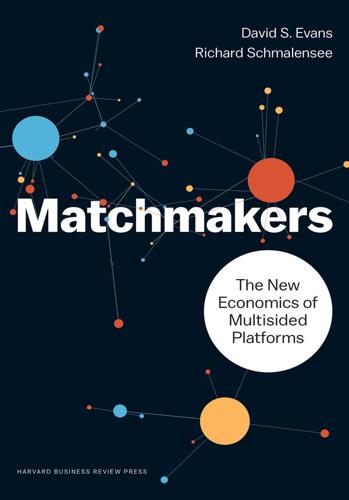
Matchmakers: The New Economics of Multisided Platforms
by
David S. Evans
and
Richard Schmalensee
Published 23 May 2016
Matchmakers is a journey through the strategies of platform businesses, which are central to our economies. Full of stories, fun to read, stimulating, and rigorous, this terrific book is required reading, from the economics and MBA student to the entrepreneur looking at building a platform to any reader curious about how our economy evolves.” —JEAN TIROLE, Chairman, Toulouse School of Economics; Winner, 2014 Nobel Prize in Economic Sciences “Matchmakers will be mandatory for anyone building or investing in multisided platforms—in the cloud or on the ground. It’s not only full of great stories like the rise of M-PESA, it’s also a practical guide to getting your platform business off the ground.
…
Almost all had difficult childhoods. Many barely made it out of the crib. Now economists know why multisided platforms can create immense value, and how they do it, and also why most matchmaker start-ups sputter and die. The Discovery of Multisided Businesses In 2000, our colleagues Jean-Charles Rochet and Jean Tirole, working at the University of Toulouse in the southwest of France, made a discovery that is still reverberating through economics departments and business schools. Over the previous five years, they had conducted research on telecommunications networks, payment card businesses, and computer operating systems.
…
After working out a pioneering economic model, they wrote a paper, “Platform Competition in Two-Sided Markets,” which began circulating among economists in 2000.18 Economists now call these businesses multisided platforms because some of them actually facilitate interactions between more than two types of customers, as we will soon see. Jean Tirole received the Nobel Memorial Prize in Economic Sciences in 2014 for a number of important accomplishments, including his pioneering contributions to the new economics of multisided platforms. In the intervening years, economists, including ourselves, have written hundreds of papers on multisided platforms that have deepened our understanding of how these businesses work and how they differ from traditional firms.
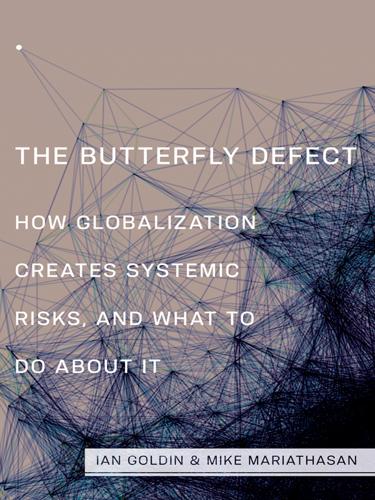
The Butterfly Defect: How Globalization Creates Systemic Risks, and What to Do About It
by
Ian Goldin
and
Mike Mariathasan
Published 15 Mar 2014
Acharya et al., eds., 2010, Regulating Wall Street: The Dodd-Frank Act and the New Architecture of Global Finance (Hoboken, NJ: John Wiley and Sons); Financial Crisis Inquiry Commission, 2011, Financial Crisis Inquiry Report: Final Report of the National Commission on the Causes of the Financial and Economic Crisis in the United States (Washington, DC: U.S. Public Affairs); or Jean Tirole, 2010, “Lessons from the Crisis,” in Balancing the Banks: Global Lessons from the Financial Crisis, ed. Mathias Dewatripont, Jean-Charles Rochet, and Jean Tirole (Princeton, NJ: Princeton University Press), 10–77. 85. Dieter Kerwer, 2005, “Rules That Many Use: Standards and Global Regulation,” Governance 18 (4): 611–632. 86. Robert M. May, Simon A. Levin, and George Sugihara, 2008, “Complex Systems: Ecology for Bankers,” Nature 451 (21 February): 893–895, quote on 893. 87.
…
Louis, 2012, “Debt Outstanding Domestic Financial Sectors,” Board of Governors of the Federal Reserve System, accessed 7 December, http://research.stlouisfed.org/fred2/data/DODFS.txt. 46. Mathias Dewatripont and Jean-Charles Rochet, 2010, “The Treatment of Distressed Banks,” in Balancing the Banks: Global Lessons from the Financial Crisis, ed. Mathias Dewatripont, Jean-Charles Rochet, and Jean Tirole (Princeton, NJ: Princeton University Press), 107–130, esp. 113. 47. Andrew G. Haldane and Robert M. May, 2011, “Systemic Risk in Banking Ecosystems,” Nature 469: 351–355, quotes on 351. 48. Franklin Allen and Douglas Gale, 2000, “Financial Contagion,” Journal of Political Economy 108 (1): 1–33; and Prasanna Gai and Sujit Kapadia, 2010, “Contagion in Financial Networks,” Bank of England Working Paper 383, Bank of England, London. 49.
…
Tarullo, 2008, Banking on Basel: The Future of International Financial Regulation (Washington, DC: Peterson Institute for International Economics); or Jean-Charles Rochet, 2010, “The Future of Banking Regulation,” in Balancing the Banks: Global Lessons from the Financial Crisis, ed. Mathias Dewatripont, Jean-Charles Rochet, and Jean Tirole (Princeton, NJ: Princeton University Press), 78–103. 80. The failure regarding Fortis Bank is discussed in Dewatripont and Rochet, 2010, 108. 81. Ibid. 82. Haldane, 2009. 83. White, 1997. 84. For a more extensive discussion of lessons from the crisis, see, for example, Viral V. Acharya et al., eds., 2010, Regulating Wall Street: The Dodd-Frank Act and the New Architecture of Global Finance (Hoboken, NJ: John Wiley and Sons); Financial Crisis Inquiry Commission, 2011, Financial Crisis Inquiry Report: Final Report of the National Commission on the Causes of the Financial and Economic Crisis in the United States (Washington, DC: U.S.
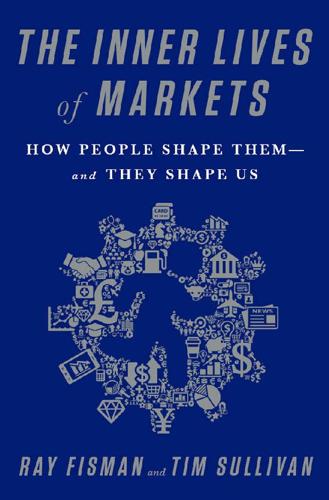
The Inner Lives of Markets: How People Shape Them—And They Shape Us
by
Tim Sullivan
Published 6 Jun 2016
Platform Builder as Internet Cop The economist who did the most to formalize our understanding of two-sided markets is Jean Tirole, a Frenchman who won the Nobel Prize in 2014.10 Within economics, Tirole is known for his superhuman productivity and, relatedly, his incredible clarity of thought. According to one of his former students, Tirole writes his papers out by hand, to be typed out by his assistant. The drafts never include scratch work or deletions—the full arc of an argument is clear in his mind as he writes out his ideas. At the Toulouse School of Economics, where he has worked since 1996, graduate students joked that there must be a dozen little Jean Tiroles hidden in his basement writing the manuscripts, given the rate at which they appeared.
…
Tirole’s work on two-sided markets was done with Jean-Charles Rochet, an economist at the University of Zurich. 11. Paul Samuelson, Economics (Cambridge, MA: MIT Press, 1988; first published 1948). 12. Binyamin Appelbaum, “Q. and A. with Jean Tirole, Economics Nobel Winner,” The Upshot, New York Times, October 14, 2014, www.nytimes.com/2014/10/15/upshot/q-and-a-with-jean-tirole-nobel-prize-winner.html. 13. His precise definition goes somewhat further than this and is framed in terms of whether the level of exchange depends on the prices that participants on different sides of the platform are charged, or just the total price.
…
We haven’t looked at the contracts that food producers have with grocery chains, but we’d bet that they lead both parties to care how many boxes of cereal or cans of beans get sold. Even if it’s not specified in the contract, you can be sure it’d come up the next time the grocer and its suppliers get together to do business. 6. Jean Tirole and Jean-Charles Rochet convey this point more precisely in a 2006 article where they show that two-sided markets are only necessary when the Coase Theorem fails. This theorem, more a conjecture provided by economist Ronald Coase, essentially argues that free markets maximize efficiency in the absence of externalities or transaction costs.
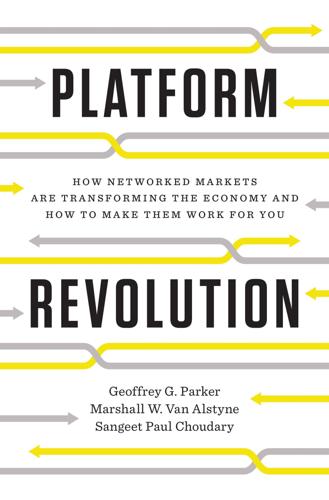
Platform Revolution: How Networked Markets Are Transforming the Economy--And How to Make Them Work for You
by
Sangeet Paul Choudary
,
Marshall W. van Alstyne
and
Geoffrey G. Parker
Published 27 Mar 2016
Significant scholarly work has been done in this area. Two of this book’s authors (Geoff Parker and Marshall Van Alstyne) were among the first scholars to lay out the theory of two-sided market pricing.2 And the theory was mentioned as part of the 2014 Nobel Prize awarded to one of the other originators of two-sided market economics, Jean Tirole.3 Achieving the right balance among the complex factors involved in two-sided market pricing isn’t easy. Netscape, one of the pioneers of the Internet era, gave away browsers for free in hopes of selling web servers. Unfortunately, there was no proprietary connection between browsers and servers that Netscape could reliably control.
…
Thanks to regulatory capture, government rules are often used to block competition and thwart innovation rather than to protect consumers and benefit society. Stigler and his followers argue that the economy and society as a whole will benefit when regulatory capture is eliminated—and that this requires the elimination of most government regulation of business. Jean-Jacques Laffont and Jean Tirole (the latter the 2014 winner of the Nobel Prize in Economics) extended Stigler’s analysis using an agency perspective, making the point that “principals,” like voters, have imperfect control over their “agents,” including elected and appointed officials. Laffont and Tirole show that it would be impossible for firms to benefit from regulatory capture if the principals involved had more complete information about and control over the behavior of their agents.10 There’s no doubt that regulatory capture does exist.
…
Our analysis shows that in fact firms with strong two-sided network externalities can maximize profit even when they distribute services to one side of the market at a price of zero. They achieve this result by earning attractive profits through sales of the goods or services they provide to the other side of the market.24 Along with other authors, including Jean Tirole, this line of research in two-sided networks has overturned the conventional wisdom and required regulators to retool their predation tests to incorporate network effects.25 In particular, regulators have viewed the practice of selling goods or services at or below cost as evidence of intent to drive competitors out of business with the intent of then raising prices once those competitors are gone.
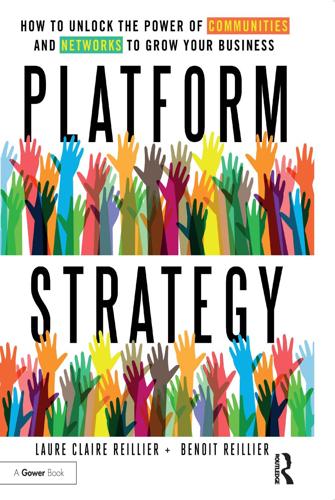
Open for Business Harnessing the Power of Platform Ecosystems
by
Lauren Turner Claire
,
Laure Claire Reillier
and
Benoit Reillier
Published 14 Oct 2017
Yet igniting and scaling platforms to critical mass is a notoriously difficult exercise, and we have tried to document some of these unique challenges, as well as offer some tips and tools to address them. Standing on the shoulders of giants Academics have recently redoubled their efforts to research platforms, a relatively new field of economics known as ‘multisided markets’ only first formalized in 2003 by French Nobel economist Jean Tirole. We are most definitely standing on the shoulders of giants, and this book would not have been possible without the insights and stories from countless platform xvi Preface executives, academics, students and clients who taught us so much over the past few years. We acknowledge the contribution of all those who shared their views with us, sent us their research, invited us to seminars and workshops, participated in some of our lectures or simply retained our firm, Launchworks, to advise them.
…
But for many twenty-first-century platform businesses, this framework lost much of its usefulness. While platforms and open business models are not new, their ‘mathematical formalization’ is very recent. The underlying economics of such businesses were first set out in a 2003 scholarly article by 2014 economic Nobel Prize winner Jean Tirole.15 His seminal work was primarily focused on market dynamics and antitrust concerns rather than the management of platform businesses themselves. Since then, new platform-powered challengers have emerged, and have been disrupting entrenched competitors with their meteoric rise. More importantly, these new model companies have revealed that some markets, once thought to be ‘traditional’, such as taxis and hotels, could in fact be served more efficiently with innovative and open platform business models enabled by digital technologies.
…
Visa and Mastercard may not have used the term multisided markets when they launched, but their operations – of connecting card users and merchants – clearly exhibited the economic characteristics of platform businesses.8 The concept of multisided markets started to be formalized by academics in 2000. Geoff Parker and Marshall Van Alstyne were among the first economists to look closely at platform business models while trying to understand how firms such as Microsoft could sustainably offer free software.9 Shortly after, JeanCharles Rochet and Jean Tirole published a seminal paper on the economics of card platforms in 2002. Their research proposed a new economic model of the price relationships used on both sides of a multisided market to better coordinate demand.10 While the main focus area of the paper was credit cards, the analysis and key findings apply more widely.

Markets, State, and People: Economics for Public Policy
by
Diane Coyle
Published 14 Jan 2020
On Regulatory Policy Andrei Shleifer (2010), “Efficient Regulation,” NBER Working Paper No. 15651 (January), http://www.nber.org/papers/w15651.pdf. Jean Tirole (2014), “Market Failures and Public Policy,” Nobel Prize lecture, https://www.nobelprize.org/nobel_prizes/economic-sciences/laureates/2014/tirole-lecture.pdf. On Specific Markets and Markets in General Richard Green (2005), “Electricity and Markets,” Oxford Review of Economic Policy 21, no. 1. John McMillan (2002), Reinventing the Bazaar, W. W. Norton & Co. Al Roth (2015), Who Gets What and Why?, William Collins. Jean Tirole (2018), Economics for the Common Good, Princeton University Press, chapters 13, 14, and 16.
…
Further Reading Technical Follow-Up Sanford Grossman and Oliver Hart (1983), “An Analysis of the Principal-Agent Problem,” Econometrica 51: 7–46. Oliver Hart, Andrei Shleifer, and Robert W. Vishny (1997), “The Proper Scope of Government: Theory and an Application to Prisons,” Quarterly Journal of Economics 112, no. 4:1127–1161. Jean-Jacques Laffont and Jean Tirole (1993), A Theory of Incentives in Procurement and Regulation, MIT Press. Jean Tirole (1986), “Hierarchies and Bureaucracies: On the Role of Collusion in Organizations,” Journal of Law, Economics, and Organization 2, no. 2 (October): 181–214. Classics James Buchanan and Gordon Tullock (1962), The Calculus of Consent, University of Michigan Press.
…
The next chapter continues the analysis of the regulation of natural monopoly markets, looking at it through the lens of the ebb and flow of public and private ownership and production over the decades since the mid-twentieth century. Further Reading Technical Follow-Up Massimo Motta (2004), Competition Policy: Theory and Practice, Cambridge University Press. Jean Tirole (2014), “Market Power and Regulation,” scientific background to the Nobel Prize announcement, http://idei.fr/sites/default/files/medias/doc/by/tirole/scientific_background_economics_nobel_2014.pdf. Classics George A. Akerlof (1970), “The Market for ‘Lemons’: Quality Uncertainty and the Market Mechanism,” Quarterly Journal of Economics 84, no. 3 (August): 488–500.
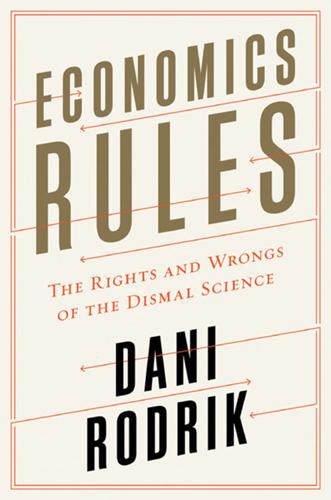
Economics Rules: The Rights and Wrongs of the Dismal Science
by
Dani Rodrik
Published 12 Oct 2015
Robinson, “The Colonial Origins of Comparative Development: An Empirical Investigation,” American Economic Review 91, no. 5 (December 2001): 1369–1401. 17. A good overall synthesis of this work can be found in Daron Acemoglu and James Robinson, Why Nations Fail: The Origins of Power, Prosperity, and Poverty (New York: Crown, 2012). 18. Binyamin Appelbaum, “Q. and A. with Jean Tirole, Economics Nobel Winner,” New York Times, October 14, 2014 (http://www.nytimes.com/2014/10/15/upshot/q-and-a-with-jean-tirole-nobel-prize-winner.html?_r=0&abt=0002&abg=0). 19. See, for example, the essays in Paul Rabinow and William M. Sullivan, eds., Interpretive Social Science: A Second Look (Berkeley: University of California Press, 1987). INDEX Page numbers in italics refer to illustrations.
…
Insights of these alternative perspectives are, in fact, readily accommodated within standard modeling practices of economics, as I’ve argued. All these divides can be bridged by viewing economics as a collection of models, along with a system of navigation among models. The discipline’s most successful and celebrated practitioners exemplify this approach. The French economist Jean Tirole, who won the 2014 Nobel Prize in Economic Sciences for his work on regulation, is a good example. In typical fashion, he was deluged after his prize was announced by journalists seeking a quick take on the research that had brought him the recognition. But his interlocutors were in for some frustration.
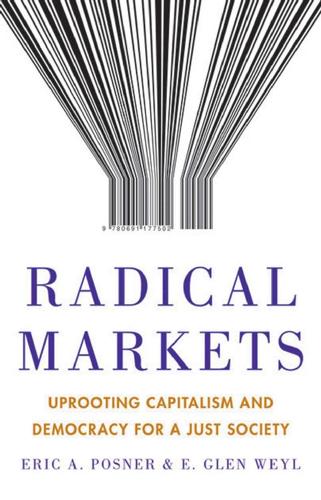
Radical Markets: Uprooting Capitalism and Democracy for a Just Society
by
Eric Posner
and
E. Weyl
Published 14 May 2018
While we identify many of our most important intellectual influences in the course of the book, each of us had personal intellectual mentors who go less noted there, but merit our thanks. Gary Becker and especially José Scheinkman played critical roles in encouraging Glen to pursue his boldest ideas, despite the costs to his professional standing and the difficulty publishing this work. Jerry Green, Amartya Sen, and especially Jean Tirole were central to shaping Glen’s view of mechanism design as a force for social transformation. Jennifer Chayes, Glen’s supervisor at Microsoft, gave him the professional space, interdisciplinary environment, and personal inspiration he needed to believe in and pursue this project. Eric is grateful for the support of his colleagues at the University of Chicago, and to the Russell Baker Scholars Fund for financial support.
…
Many social scientists have also argued that siren servers use techniques similar to those employed by casinos to make their content addictive.35 Together these properties raise the power of siren servers to lock users into patterns that may not serve their long-term interests. Second, as highlighted by economist Roland Bénabou and Nobel Laureate Jean Tirole in their incisive 2003 and 2006 analyses of situations like the Tom Sawyer problem, paying for an activity often undermines intrinsic motivations (such as entertainment and social pressure).36 Paying for online data provision may signal to users that the activities they currently view as entertainment are actually labor benefiting the siren servers and for which they should demand payment, undermining the entertainment value.
…
Annalee Newitz, Raters of the World, Unite—The Secret Lives of Google Raters, Ars Technica (April 27, 2017), https://arstechnica.com/features/2017/04/the-secret-lives-of-google-raters/. 29. For example, a controversy raged in 2017 over Google’s role in the firing of a policy researcher critical of their business practices. 30. See Roland Bénabou & Jean Tirole, Intrinsic and Extrinsic Motivation, 70 Review of Economic Studies 489 (2003), for a survey of this literature. 31. Sara Constance Kingsley et al., Accounting for Market Frictions and Power Asymmetries in Online Labor Markets, 7 Policy & Internet 383 (2015). 32. Arindrajit Dube, Jeff Jacobs, Suresh Naidu, & Siddharth Suri, Monopsony in Crowdsourcing Labor Markets (Columbia University Working Paper, 2017). 33. https://www.nytimes.com/2016/05/06/business/facebook-bends-the-rules-of-audience-engagement-to-its-advantage.html?
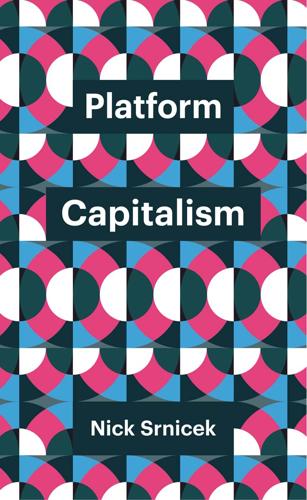
Platform Capitalism
by
Nick Srnicek
Published 22 Dec 2016
‘Reinventing the Deal’. 2015. The Economist, 24 October. http://www.economist.com/news/briefing/21676760-americas-startups-are-changing-what-itmeans-own-company-reinventing-deal (accessed 4 June 2016). Rochet, Jean-Charles, and Jean Tirole. 2003. ‘Platform Competition in Two-Sided Markets’. Journal of the European Economic Association, 1 (4): 990–1029. Rochet, Jean-Charles, and Jean Tirole. 2006. ‘Two-Sided Markets: A Progress Report’. The RAND Journal of Economics, 37 (3): 645–67. Scheiber, Noam. 2015. ‘Growth in the “Gig Economy” Fuels Work Force Anxieties’. The New York Times, 12 July. http://www.nytimes.com/2015/07/13/business/rising-economic-insecurity-tied-to-decades-long-trend-in-employment-practices.html (accessed 4 June 2016).
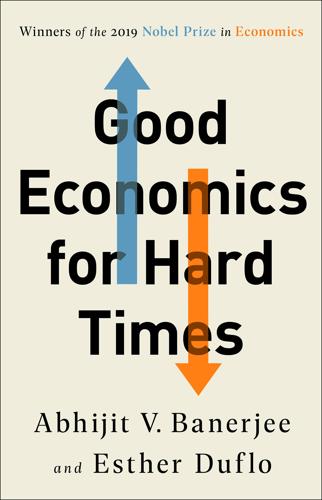
Good Economics for Hard Times: Better Answers to Our Biggest Problems
by
Abhijit V. Banerjee
and
Esther Duflo
Published 12 Nov 2019
We economists, in our fealty to standard preferences, have tried very hard to keep all of that out, but it is increasingly obvious this is a hopeless quest. MOTIVATED BELIEFS Once we begin to acknowledge that our beliefs and even what we take to be our deep preferences are determined by context, many things fall into place. One important insight comes from the Nobel Prize–winner Jean Tirole’s work with Roland Bénabou on motivated beliefs.47 They argue that a big step toward understanding beliefs is not taking them too literally. Our beliefs about ourselves are shaped in part by our emotional needs; we feel terrible when we disappoint ourselves. The emotional value we put on beliefs about ourselves also leads us to distort our beliefs about others; for example, since we want to shield ourselves from our own prejudices, we couch them in the language of objective truth (“I have nothing against North African cashiers, but they would not respond to my encouragement anyway, so I don’t bother”).
…
Knight, Risk, Uncertainty, and Profit (Boston: Hart, Schaffner, and Marx, 1921). 67 Justin Sydnor, “(Over)insuring Modest Risks,” American Economic Journal: Applied Economics 2, no. 4 (2010): 177–99. 68 We will return to the idea of these motivated beliefs in chapter 4. For a reference, see Roland Bénabou and Jean Tirole, “Mindful Economics: The Production, Consumption, and Value of Beliefs,” Journal of Economic Perspectives 30, no. 3 (2016): 141–64. 69 Alexis de Tocqueville, Democracy in America (London: Saunders and Otley, 1835). 70 Alberto Alesina, Stefanie Stantcheva, and Edoardo Teso, “Intergenerational Mobility and Preferences for Redistribution,” American Economic Review 108, no. 2 (2018): 521–54, DOI: 10.1257/aer.20162015. 71 Benjamin Austin, Edward Glaeser, and Lawrence H.
…
Banerjee and Esther Duflo, “Reputation Effects and the Limits of Contracting: A Study of the Indian Software Industry,” Quarterly Journal of Economics 115, no. 3 (2000): 989–1017. 35 Amos Tversky and Daniel Kahneman, “The Framing of Decisions and Psychology of Choice,” Science 211 (1981): 453–58. 36 Jean Tirole, “A Theory of Collective Reputations (with Applications to the Persistence of Corruption and to Firm Quality),” Review of Economic Studies 63, no. 1 (1996): 1–22. 37 Rocco Machiavello and Ameet Morjaria, “The Value of Relationships: Evidence from Supply Shock to Kenyan Rose Exports,” American Economic Review 105, no. 9 (2015): 2911–45. 38 Wang Xiaodong, “Govt Issues Guidance for Quality of Products,” China Daily, updated September 14, 2017, accessed March 29, 2019, http://www.chinadaily.com.cn/china/2017-09/14/content_31975019.htm. 39 Gujanita Kalita, “The Emergence of Tirupur as the Export Hub of Knitted Garments in India: A Case Study,” ICRIER, accessed April 21, 2019, https://www.econ-jobs.com/research/52329-The-Emergence-of-Tirupur-as-the-Export-Hub-of-Knitted-Garments-in-India-A-Case-Study.pdf. 40 L.

Working in Public: The Making and Maintenance of Open Source Software
by
Nadia Eghbal
Published 3 Aug 2020
Decentralized communities prioritize work based on abundance of attention: encouraging new contributors, developing governance processes, and improving engagement and retention. But a creator prioritizes work based on scarcity of attention: saying no to contributions, closing out issues, reducing user support. While the commons is tasked with resolving coordination issues, creators are defined by the need for curation. Josh Lerner and Jean Tirole’s “The Simple Economics of Open Source” was published in 2000, but it contains analysis and observations that are still trenchant today. The widely cited paper questions whether the commons was ever tractable in open source, or just a temporary phenomenon: Can the management of open source projects accommodate the increasing number of contributors?
…
Tague, “UNIX Time-Sharing System: Foreword,” The Bell System Technical Journal 57, no. 6 (1978): 1902, https://doi.org/10.1002/j.1538-7305.1978.tb02135.x. 118 Benkler, “Coase’s Penguin,” 379. 119 David Heinemeier Hansson, “The Perils of Mixing Open Source and Money,” November 12, 2013, https://dhh.dk/2013/the-perils-of-mixing-open-source-and-money.html. 120 Josh Lerner and Jean Tirole, “The Simple Economics of Open Source,” NBER Working Paper 7600, National Bureau of Economic Research, March 2000, 32, https://doi.org/10.3386/w7600. 121 Eugene Wei, “Status as a Service (StaaS),” Remains of the Day, February 19, 2019, https://www.eugenewei.com/blog/2019/2/19/status-as-a-service. 122 Michael Wesch, “YouTube and You: Experiences of Self-Awareness in the Context Collapse of the Recording Webcam,” Explorations in Media Ecology 8, no. 2 (2009): 19–34. 123 Robert E.
…
An OSS Project-by-Project Typology,” in Proceedings of the 11th Working Conference on Mining Software Repositories - MSR 2014, chair Premkumar Devanbu (Hyderabad, India: Association for Computing Machinery, May 2014): 344–46, https://doi.org/10.1145/2597073.2597116. 163 Gustavo Pinto, Igor Steinmacher, and Marco Aurélio Gerosa, “More Common Than You Think: An In-Depth Study of Casual Contributors,” in 2016 IEEE 23rd International Conference on Software Analysis, Evolution, and Reengineering (SANER) (Suita, Japan: IEEE, March 2016), 518–528, https://doi.org/10.1109/saner.2016.68. 164 Igor Steinmacher, Igor Wiese, Ana Paula Chaves, and Marco Aurélio Gerosa, “Why Do Newcomers Abandon Open Source Software Projects?,” in 2013 6th International Workshop on Cooperative and Human Aspects of Software Engineering (CHASE) (IEEE: San Francisco, May 2013): 31, https://doi.org/10.1109/chase.2013.6614728. 165 Josh Lerner and Jean Tirole, “Some Simple Economics of Open Source,” The Journal of Industrial Economics 50, no. 2 (June 2002): 197–234, https://doi.org/10.1111/1467-6451.00174. 166 Nadia Eghbal, “The Rise of Few-Maintainer Projects,” Increment 9 (May 2019), https://increment.com/open-source/the-rise-of-few-maintainer-projects/. 167 Kraut and Resnick, Building Successful Online Communities, 205. 168 Christoph Hannebauer, Matthias Book, and Volker Gruhn, “An Exploratory Study of Contribution Barriers Experienced by Newcomers to Open Source Software Projects,” in Proceedings of the 1st International Workshop on CrowdSourcing in Software Engineering - CSI-SE 2014, chairs Gordon Fraser et al.
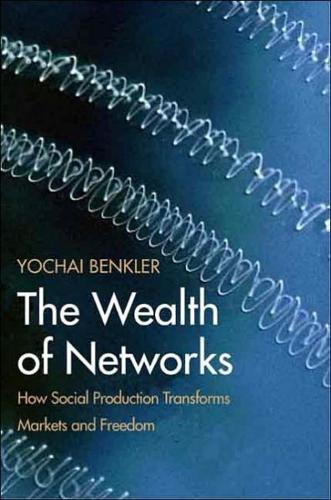
The Wealth of Networks: How Social Production Transforms Markets and Freedom
by
Yochai Benkler
Published 14 May 2006
For an excellent history of the free software movement and of open-source development, see Glyn Moody, Rebel Code: Inside Linux and the Open Source Revolution (New York: Perseus Publishing, 2001). 19. Elinor Ostrom, Governing the Commons: The Evolution of Institutions for Collective Action (Cambridge: Cambridge University Press, 1990). 20. Josh Lerner and Jean Tirole, "The Scope of Open Source Licensing" (Harvard NOM working paper no. 02-42, table 1, Cambridge, MA, 2002). The figure is computed out of the data reported in this paper for the number of free software development projects that Lerner and Tirole identify as having "restrictive" or "very restrictive" licenses. 21.
…
Being offered money to do something you know you "ought" to do, and that self-respecting members of society usually in fact do, implies that the person offering the money believes that you are not a well-adjusted human being or an equally respectable member of society. This causes the person offered the money either to believe the offerer, and thereby lose self-esteem and reduce effort, or to resent him and resist the offer. A similar causal explanation is formalized by Roland Benabou and Jean Tirole, who claim that the person receiving the monetary incentives infers that the person offering the compensation does not trust the offeree to do the right thing, or to do it well of their own accord. The offeree's self-confidence and intrinsic motivation to succeed are reduced to the extent that the offeree believes that the offerer--a manager or parent, for example--is better situated to judge the offeree's abilities. 34 188 More powerful than the theoretical literature is the substantial empirical literature--including field and laboratory experiments, econometrics, and surveys--that has developed since the mid-1990s to test the hypotheses of this model of human motivation.
…
They are, rather, a sustainable pattern of human production given the characteristics of the networked information economy. The diversity of human motivation is nothing new. We now have a substantial literature documenting its importance in free and open-source software development projects, from Josh Lerner and Jean Tirole, Rishab Ghosh, Eric Von Hippel and Karim Lakhani, and others. Neither is the public goods nature of information new. What is new are the technological conditions that allow these facts to provide the ingredients of a much larger role in the networked information economy for nonmarket, nonproprietary production to emerge.
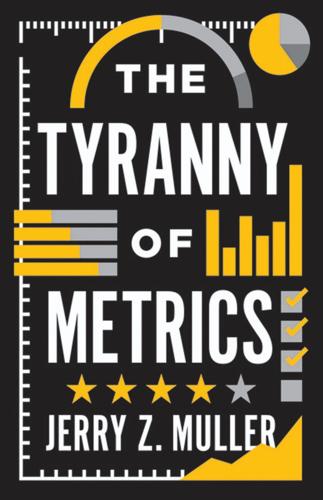
The Tyranny of Metrics
by
Jerry Z. Muller
Published 23 Jan 2018
For some are motivated less by extrinsic monetary rewards than by various sorts of intrinsic psychic rewards, including their commitment to the goals of the organizations for which they work, or a fascination with the complexity of the work they do, which makes it challenging, interesting, and entertaining. The existence of intrinsic as well as extrinsic motivations is obvious to anyone who has managed workers in complex tasks. It was articulated in the mid-1970s by psychologists, and has since been rediscovered and formalized by economists, including Jean Tirole, a recent recipient of the Nobel Prize for economics.8 It is simple-minded to assume that people are motivated only by the desire for more money, and naive to assume that they are motivated only by intrinsic rewards. The challenge is to figure out when each of these motivations is most effective, and in recent years social scientists have devoted attention to that issue.
…
Rainey and Young Han Chun, “Public and Private Management Compared,” in Ewan Ferlie, Laurence E. Lynn, Jr., and Christopher Pollitt (eds.), The Oxford Handbook of Public Management (New York, 2005), pp. 72–102, 85; and James Q. Wilson, Bureaucracy: What Government Agencies Do and Why They Do It (New York, 2000), pp. 156–57. 8. Roland Bénabout and Jean Tirole, “Intrinsic and Extrinsic Motivation,” Review of Economic Studies no. 70 (2003), pp. 489–520. A pioneering work of intrinsic motivation theory was Edward L. Deci, Intrinsic Motivation (New York, 1975). Other studies by psychologists include Thane S. Pittman, Jolee Emery, and Ann K. Boggiano, “Intrinsic and Extrinsic Motivational Orientations: Reward-Induced Changes in Preference for Complexity,” Journal of Personality and Social Psychology 42, no. 5 (1982), pp. 789–97; and T.
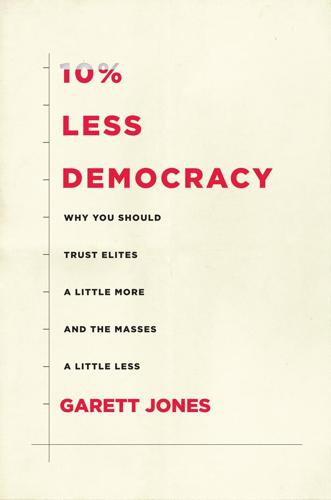
10% Less Democracy: Why You Should Trust Elites a Little More and the Masses a Little Less
by
Garett Jones
Published 4 Feb 2020
I leave this question as food for thought, perhaps for another day.”²⁰ In the next chapter, that day arrives. 4 The 2% Solution Nonaccountability [e.g., restricting the power of voters to punish government officials] is most desirable when (a) the electorate is poorly informed about the optimal action, (b) acquiring decision-relevant information is costly, and (c) feedback about the quality of decisions is slow. Therefore, technical decisions, in particular, may be best allocated to judges or appointed bureaucrats. ERIC MASKIN AND JEAN TIROLE PRINCETON’S ALAN BLINDER HAD a whirlwind career in Washington: President Clinton asked him to serve on his Council of Economic Advisers, and then eighteen months later, Blinder took the second most powerful job at the Federal Reserve: vice chair. Nineteen months after that, he was back at Princeton.
…
Dataset Users’ Manual. Vienna, VA: Center for Systemic Peace. 2017. Marshall, Monty G., Ted Gurr, and Keith Jaggers. “Center for Systemic Peace: Polity IV Country Report 2010; Singapore.” Vienna, VA: Center for Systemic Peace, 2011. http://www.systemicpeace.org/polity/Singapore2010.pdf Maskin, Eric, and Jean Tirole. “The Politician and the Judge: Accountability in Government.” American Economic Review 94, no. 4 (2004): 1034–1054. Maurice, Eric. “EU Buries Migration Dispute for Now.” EU Observer, October 20, 2016. https://euobserver.com/migration/135576. Mayhew, David R. Congress: The Electoral Connection.
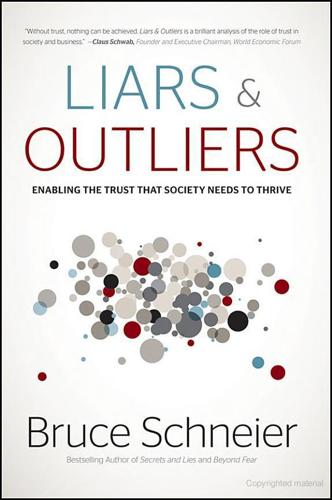
Liars and Outliers: How Security Holds Society Together
by
Bruce Schneier
Published 14 Feb 2012
reputation scale Avinash Dixit and Barry Nalebuff (1991), Thinking Strategically: The Competitive Edge in Business, Politics, and Everyday Life, Norton, 144–61. Criminals have signals Diego Gambetta (2009), Codes of the Underworld: How Criminals Communicate, Princeton University Press. Shared brand names Jean Tirole (1996), “A Theory of Collective Reputations (with Applications to the Persistence of Corruption and to Firm Quality),” Review of Economic Studies, 63:1–22. Saudi Binladin Group Holly Williams (20 Nov 2001), “Bin Laden Group Reputation Brief on Global Scale,” PR Week UK. pay a premium Stefano Castriota and Marco Delmastro (2009), “The Economics of Collective Reputation: Minimum Quality Standards, Vertical Differentiation, and Optimal Group Size,” American Association of Wine Economists Working Paper 50.
…
September 11 attacks Nate Silver (4 Jan 2010), “The Skies Are as Friendly as Ever: 9/11, Al Qaeda Obscure Statistics on Airline Safety,” FiveThirtyEight.com. scale is too large Bruce Schneier (2008), “Seven Habits of Highly Unsuccessful Terrorists,” Wired News. Max Abrams (2008), “What Terrorists Really Want,” International Security, 32:78–105. regulatory capture Jean J. Laffont and Jean Tirole (1991), “The Politics of Government Decision-Making: A Theory of Regulatory Capture,” The Quarterly Journal of Economics, 106:1089–127. Mark Jickling (2004), “Barriers to Corporate Fraud: How They Work, Why They Fail,” CRS Report for Congress RL32718, Congressional Research Service. Dieter Helm (2006), “Regulatory Reform, Capture, and the Regulatory Burden,” Oxford Review of Economic Policy, 22:169–86.
…
Patton, Natalie Smith, and David Tracer (2005), “'Economic Man' in Cross-Cultural Perspective: Behavioral Experiments in 15 Small-Scale Societies,” Behavioral & Brain Sciences, 28:795–855. Some researchers claim Ernst Fehr and Urs Fischbacher (2005), “Human Altruism: Proximate Patterns and Evolutionary Origins,” Analyse & Kritik, 27:6–47. Others claim Roland Bénabou and Jean Tirole (2006), “Incentives and Prosocial Behavior,” American Economic Review, 96:1652–78. Amihai Glazer and Kai A. Konrad (1996) “A Signaling Explanation for Charity,” American Economic Review, 86:1019–28. Dan Ariely, Anat Bracha, and Stephan Meier (2008), “Doing Good or Doing Well? Image Motivation and Monetary Incentives in Behaving Prosocially,” Federal Reserve Bank of Boston Working Paper No. 07–9.
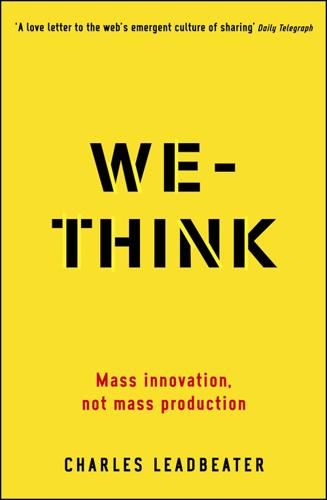
We-Think: Mass Innovation, Not Mass Production
by
Charles Leadbeater
Published 9 Dec 2010
Page, The Difference: How the Power of Diversity Creates Better Groups, Firms, Schools, and Societies (Princeton University Press, 2007) 16 Bart Nooteboom, Learning and Innovation in Organizations and Economies (Oxford University Press, 2000) 17 Steven Weber, The Success of Open Source (Cambridge, MA/London: Harvard University Press, 2004) 18 Articles by Lakhani, Ghosh and Lerner in Joseph Feller, Brian Fitzgerald, Scott A. Hissam, Karim R. Lakhani (Eds), Perspectives on Free and Open Source Software (Cambridge, MA: MIT Press, 2005) 19 Josh Lerner and Jean Tirole, ‘The Simple Economics of Open Source’, NBER Working Paper W7600 (2000). Available from http://www.nber.org/papers/w7600 20 Robert Wright, Nonzero (Abacus, 2001) 21 Carliss Y. Baldwin and Kim B. Clark, Design Rules (Cambridge, MA/London: MIT Press, 2000) Chapter 4 1 Richard Sennett, The Culture of the New Capitalism (New Haven, CT/London: Yale University Press, 2006) 2 Mitch Kapor, blog.kapor.com 3 Henry Chesbrough, Wim Vanhaverbeke and Joel West (Eds), Open Innovation: Researching a New Paradigm (Oxford University Press, 2006) 4 John Hartley, ‘Culture Business and the Value Chain of Meaning’, The New Economy, Creativity and Consumption – A Symposium (Brisbane: Queensland University of Technology Publications, 2002), pp. 39–46 5 http://www.blizzard.com/inblizz/profile.shtml 6 Nicolas Ducheneaut, Nicholas Yee, Eric Nickell and Robert J.
…
, Guardian, 26 January 2006 Lane, Christel, and Reinhard Bachmann (Eds), Trust Within and Between Organizations (Oxford University Press, 1998) Larsson, Ulf (Ed), Cultures of Creativity (Canton, MA: Science History Publications, 2002) Leadbeater, Charles, ‘The DIY State’, Prospect 130, January 2007 Lencek, Lena, and Gideon Bosker, The Beach: The History of Paradise on Earth (New York: Penguin, 1999) Lerner, Josh, and Jean Tirole, ‘The Simple Economics of Open Source’, NBER Working Paper W7600 (2000). Available from http://www.nber.org/papers/w7600 Lessig, Lawrence, Code and Other Laws of Cyberspace (New York: Basic Books, 1999) Lessig, Lawrence, Free Culture (New York: Penguin Press, 2004) Lester, Richard K., and Michael Piore, Innovation: The Mission Dimension (Harvard University Press, 2004) Lethem, Jonathan, ‘The Ecstasy of Influence’, Harper’s Magazine, February 2007 Levine, Rick, Christopher Locke, Doc Searls and David Weinberger, The Cluetrain Manifesto (Perseus Books, 2000) Levy, Pierre and Robert Bonomo (trans), Collective Intelligence: Mankind’s Emerging World in Cyberspace (Perseus Books 1997) Levy, Steven, and Brad Stone, ‘The New Wisdom of the Web’, Newsweek, April 2006.
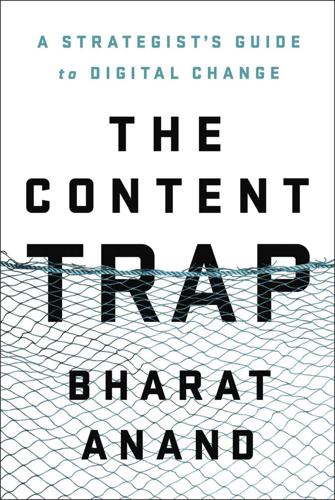
The Content Trap: A Strategist's Guide to Digital Change
by
Bharat Anand
Published 17 Oct 2016
when it restricted its service Judd Cramer and Alan Krueger, “Disruptive Change in the Taxi Business: The Case of Uber,” National Bureau of Economic Research, Working Paper No. 22083, March 2016. “product versus platform” See also Jean-Charles Rochet and Jean Tirole, “Platform Competition in Two-Sided Markets,” Journal of the European Economic Association 1, No. 4 (June 2003), 990–1039; Mark Armstrong, “Competition in Two-Sided Markets,” RAND Journal of Economics , 37, no. 3 (Autumn 2006), 668–91; Jean-Charles Rochet and Jean Tirole, “Two-Sided Markets: A Progress Report,” RAND Journal of Economics , 37, no. 3 (Autumn 2006), 645–67. in 1996 Nick Statt, “Rare Pokemon Card Attracts Record-Breaking $50k Offers on eBay,” CNET , September 5, 2013.
…
“Reproducing Knowledge: Replication Without Information at Moderate Complexity.” Organization Science 12, no. 3 (May–June 2001). Rob, Rafael, and Joel Waldfogel. “Piracy on the High C’s: Music Downloading, Sales Displacement, and Social Welfare in a Sample of College Students.” Journal of Law and Economics, 49, no. 1 (2006): 29–62. Rochet, Jean-Charles, and Jean Tirole. “Platform Competition in Two-Sided Markets.” Journal of the European Economic Association 1, no. 4 (June 2003): 990–1029. ———. “Two-Sided Markets: A Progress Report.” RAND Journal of Economics 37, no. 3 (Autumn 2006): 645–67. Rogers, Jim. The Death and Life of the Music Industry in the Digital Age.
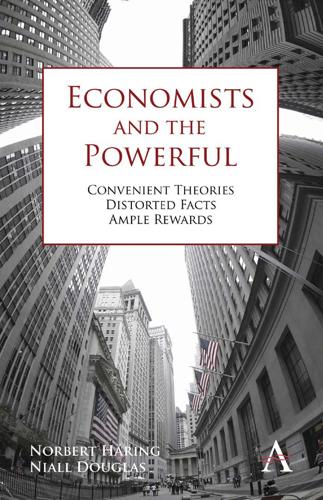
Economists and the Powerful
by
Norbert Haring
,
Norbert H. Ring
and
Niall Douglas
Published 30 Sep 2012
The Economics of Discrimination. 2nd ed. Chicago: University of Chicago Press. . 1976. The Economic Approach to Human Behavior. Chicago: University of Chicago Press. Bellante, Don. 2004. “Edward Chamberlin: Monopolisitic Competition and Pareto Optimality.” Journal of Business and Economics Research 2: 17–28. Benabou, Roland and Jean Tirole. 2006. “Belief in a Just World and Redistributive Politics.” Quarterly Journal of Economics 121: 699–746. Benmelech, Efraim, Eugene Kandel and Pietro Veronesi. 2010. “Stock-Based Compensation and CEO (Dis)Incentives.” Quarterly Journal of Economics 125: 1769–1820. Benmelech, Efraim and Toby Moskowitz.
…
McConnell. 2006. “Political Connections and Corporate Bailouts.” Journal of Finance 61: 2597–2635. Farber, Henry S. 2005. “What Do We Know About Job Loss in the United States: Evidence from the Displaced Workers Survey, 1984–2004.” Federal Reserve Bank of Chicago Regional Review: 13–28. Farhi, Emmanuel and Jean Tirole. 2009. “Collective Moral Hazard, Maturity Mismatch and Systemic Bailouts.” NBER Working Paper 15138. Farhi, Emmanuel and Iván Werning. 2008. “The Political Economy of Nonlinear Capital Taxation.” Working paper. Feenstra, Robert, Benjamin Mandel, Marshall B. Reisdorf and Matthew J. Slaughter. 2009.
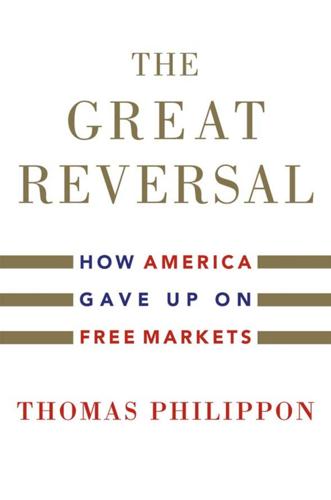
The Great Reversal: How America Gave Up on Free Markets
by
Thomas Philippon
Published 29 Oct 2019
The concern, however, is that a monopoly with full information can extract all the surplus. This is the fear expressed by Omarova. The key point here is that free entry becomes more important when firms increase price discrimination. Platforms use a variety of tools to limit competition, and sometimes that involves preventing price discrimination. Nobel Prize–winning economist Jean Tirole (2017) emphasizes the role of price coherence, also called the “most favored nation” clause. That name is a metaphor that comes from international trade agreements. The idea is that a platform will prevent its merchants from offering lower prices outside the platform. Online booking services require that restaurants or hotels not offer cheaper prices on their own websites.
…
I have also benefited greatly from the insights of Ariel Burnstein, Luis Cabral, Gilbert Cette, Emmanuel Combe, Chiara Criscuolo, Jan De Loecker, Robin Döttling, Tomaso Duso, Rana Foroohar, Xavier Gabaix, Bob Hall, Erik Hurst, Seema Jayachandran, Sebnem Kalemli-Ozcan, Thomas Piketty, Howard Rosenthal, Tano Santos, Fiona Scott Morton, Dina Srinivasan, Johannes Stroebel, Jonathan Tepper, Jean Tirole, Nicolas Véron, David Wessel, Luigi Zingales, and Gabriel Zucman. I am grateful to Ian Malcolm and Mark Steinmeyer, who saw promise in my early ideas, to Rob Garver and Katherine Brick, who edited my dry and technical prose, to the team at Harvard University Press for their professionalism, and to the Smith Richardson Foundation for its support.

Never Let a Serious Crisis Go to Waste: How Neoliberalism Survived the Financial Meltdown
by
Philip Mirowski
Published 24 Jun 2013
“The First Privatisation: Seeling SOEs and Privatizing Public Monopolies in Fascist Italy,” Cambridge Journal of Economics 35(5)(2011): 937-956. Benabou, Roland, and Jean Tirole. “Identity, Dignity and Taboos,” CEPR Discussion Paper 6123 (2007), available at www.vwl.tuwien.ac.at/hanappi/AgeSo/rp/Benabou_2007.pdf. Benabou, Roland, and Jean Tirole. “Self-Knowledge and Self-Regulation: An Economic Approach,” in I. Brocas and J. Carillo, eds., The Psychology of Economic Decisions, vol. 1 (Oxford: Oxford University Press, 2003), pp. 137–67. Benabou, Roland, and Jean Tirole. “Willpower and Personal Rules,” Journal of Political Economy 112 (2004): 848–86. Berg, Nathan, and Gerd Gigerenzer.
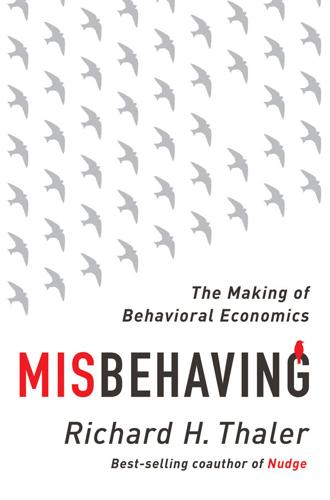
Misbehaving: The Making of Behavioral Economics
by
Richard H. Thaler
Published 10 May 2015
The second was developing theory. Economists were not going to take the field seriously until it had formal mathematical models that could incorporate the additional findings from psychology. With talented new behavioral economists entering the field, and even some well-established theorists such as Jean Tirole (the winner of the 2014 Nobel Prize) dabbling with behavioral models, there was continual progress on both fronts. But there was a third goal lurking in the background: could we use behavioral economics to make the world a better place? And could we do so without confirming the deeply held suspicions of our biggest critics: that we were closet socialists, if not communists, who wanted to replace markets with bureaucrats?
…
Behavioural Insights Team. 2013. “Removing the Hassle Factor Associated with Loft Insulation: Results of a Behavioural Trial.” UK Department of Energy & Climate Change, September. Available at: https://www.gov.uk/government/publications/loft-clearance-results-of-a-behavioural-trial. Bénabou, Roland, and Jean Tirole. 2003. “Intrinsic and Extrinsic Motivation.” Review of Economic Studies 70, no. 3: 489–520. Benartzi, Shlomo, and Richard H. Thaler. 1995. “Myopic Loss Aversion and the Equity Premium Puzzle.” Quarterly Journal of Economics 110, no. 1: 73–92. ———. 1999. “Risk Aversion or Myopia? Choices in Repeated Gambles and Retirement Investments.”
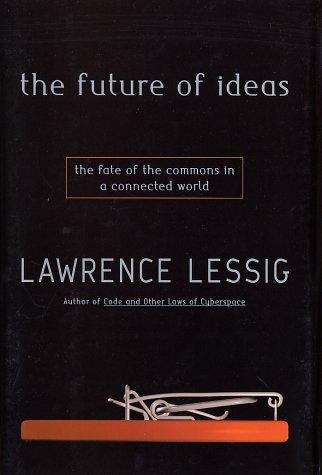
The Future of Ideas: The Fate of the Commons in a Connected World
by
Lawrence Lessig
Published 14 Jul 2001
.: O'Reilly, 1999), 151. 54 Wayner, 289. 55 “IBM Extends Software Leadership on Linux,” IBM Press Release, December 8, 2000. 56 Economists have only begun to examine the incentives that might affect open code projects. Josh Lerner and Jean Tirole have summarized some of the benefits, relative to closed code projects, as follows: (1) lower costs due to (a) familiarity of the code from, e.g., university training, and (b) customization/bug-fixing advantages; and (2) higher benefits, especially due to signaling from (a) better performance measurement (easier to demonstrate skill), (b) “full initiative” (because no supervisory involvement), and (c) greater labor market fluidity. See Josh Lerner and Jean Tirole, “The Simple Economics of Open Source” (NBER Working Paper No. 7600, December 2000).

Virtual Competition
by
Ariel Ezrachi
and
Maurice E. Stucke
Published 30 Nov 2016
Brown & Williamson Tobacco Corp., 509 U.S. 209 (1993); R. S. Khemani and D. M. Shapiro, Glossary of Industrial Organisation Economics and Competition Law (Paris: Organisation for Economic Cooperation and Development, 1993), http://www.oecd.org/dataoecd/8/61 /2376087.pdf. 2. Marc Ivaldi, Bruno Jullien, Patrick Rey, Paul Seabright, and Jean Tirole, “The Economics of Tacit Collusion,” Final Report for DG Competition (Toulouse: Eu ropean Commission, March 2003), 4, http://ec.europa .eu /competition/mergers/studies _ reports/the _ economics _of _tacit _ collusion _ en.pdf. 3. For a review of the economics of tacit collusion and the EU approach, see Nicolas Petit, “The ‘Oligopoly Problem’ in EU Competition Law” in Research Handbook in European Competition Law, Ioannis Liannos and Damien Geradin, eds.
…
John Markoff, “Toyota Invests $1 Billion in Artificial Intelligence in U.S.,” New York Times, November 6, 2015, http://www.nytimes.com/2015/11/06 /technology/toyota-silicon-valley-artificial-intelligence-research-center.html ?_r = 0; Mui, “Google Is Millions of Miles Ahead of Apple in Driverless Cars.” See, e.g., Markoff, “Toyota Invests $1 Billion in Artificial Intelligence in U.S.” Jean Tirole, “Comments Made at FT-ETNO Summit 2015,” Financial Times (October 13, 2015), https://live.ft.com/Events/2015/FT-ETNO-Summit-2015. Stone, “Exclusive.” Matt Weinberger, “Microsoft Could See an Opportunity to Poke Google in the Eye with Uber Investment,” Business Insider UK (July 31, 2015), http://www.businessinsider.com/microsoft-and-google-are-uber-investors -2015-7.

People, Power, and Profits: Progressive Capitalism for an Age of Discontent
by
Joseph E. Stiglitz
Published 22 Apr 2019
With other colleagues, we showed that the fight to be the monopolist didn’t necessarily have the positive effect on innovation that Schumpeter has assumed, but, on the contrary, could dampen it. See, for instance, Kenneth J. Arrow, “Economic Welfare and the Allocation of Resources to Invention,” and Drew Fudenberg, Richard Gilbert, Joseph E. Stiglitz, and Jean Tirole, “Preemption, Leapfrogging and Competition in Patent Races,” European Economic Review 22 (June 1983): 3–32 (Jean Tirole received the Nobel Memorial Prize in Economics in 2014). These conclusions have been reinforced by more recent results of Greenwald and Stiglitz, Creating a Learning Society, especially chapters 5 and 6. Arnold Harberger of the University of Chicago claimed that the loss in consumer welfare from monopoly power was of second-order importance (around 0.1 percent of GDP).
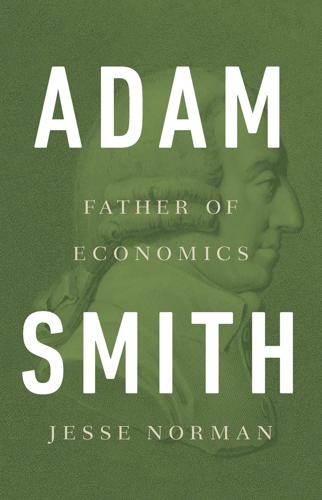
Adam Smith: Father of Economics
by
Jesse Norman
Published 30 Jun 2018
Nelson, ‘Poisoning the Well, or How Economic Theory Damages Moral Imagination’, in George DeMartino and Deirdre McCloskey (eds.), The Oxford Handbook on Professional Economic Ethics, Oxford University Press 2016. It is notable how far mainstream economists have started to draw on this wider cluster of ideas, as e.g. in two recent books by Nobel laureates: Edmund Phelps, Mass Flourishing: How Grassroots Innovation Created Jobs, Challenge, and Change, Princeton University Press 2013; and Jean Tirole, Economics for the Common Good, Princeton University Press 2017 Inadequacy of genderless and raceless economics: Margherita Borella, Mariacristina De Nardi and Fang Yang, ‘The Aggregate Implications of Gender and Marriage’, Journal of the Economics of Ageing, 2017; Tomaz Cajner, Tyler Radler, David Ratner and Ivan Vidangos, ‘Racial Gaps in Labor Market Outcomes in the Last Four Decades and over the Business Cycle’, Washington DC, Federal Reserve System 2017 Husbandry: Julie A.
…
Kenneth Boulding, ‘Economics as a Moral Science’, American Economic Review, 59.1, 1969: ‘It was… Veblen’s principal, and still largely unrecognized, contribution to formal economic theory, to point out that we cannot assume that tastes are “given” in any dynamic theory’ (my added inverted commas). As Boulding notes, when he was a student at Cambridge University this understanding of economics was still reflected in its status as part of the (now defunct) Moral Sciences Tripos Beliefs as property: Roland Bénabou and Jean Tirole, ‘Identity, Morals, and Taboos: Beliefs as Assets’, Quarterly Journal of Economics, 126. 2, 2011 The economy of regard: see Avner Offer, The Challenge of Affluence: Self-Control and Well-Being in the United States and Britain since 1950, Oxford University Press 2006, Ch. 6; and ‘Self-Interest, Sympathy and the Invisible Hand: From Adam Smith to Market Liberalism’, Economic Thought, 1.2, 2012 Parking tickets in New York: Raymond Fisman and Edward Miguel, ‘Cultures of Corruption: Evidence from Diplomatic Parking Tickets’, NBER Working Paper 12312, 2006.
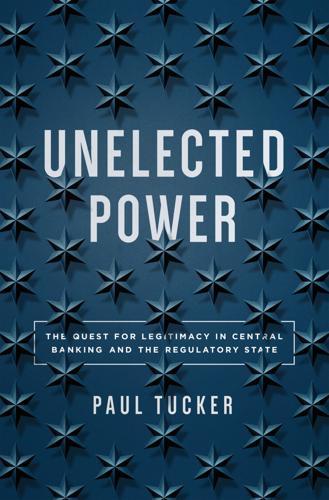
Unelected Power: The Quest for Legitimacy in Central Banking and the Regulatory State
by
Paul Tucker
Published 21 Apr 2018
Brookings Papers on Economic Activity (2012): 233–97. DeMuth, Christopher. “Can the Administrative State Be Tamed.” Journal of Legal Analysis 8, no. 1 (2016): 121–90. de Waal, James. “Depending on the Right People: British Political-Military Relations 2001–2010.” London: Chatham House, 2013. Dewatripont, Mathias, Ian Jewitt, and Jean Tirole. “The Economics of Career Concerns, Part II: Application to Missions and Accountability of Government Agencies.” Review of Economic Studies 66, no. 1 (1999): 199–217. Dewey, John. The Public and Its Problems. Athens, OH: Swallow Press, 1954. Diamond, Douglas W., and P. H. Dybvig. “Bank Runs, Deposit Insurance, and Liquidity.”
…
Eskridge, William N., and John Ferejohn. “Super-Statutes.” Duke Law Journal 50 (2001): 1215–76. Estlund, David. Democratic Authority. Princeton, NJ: Princeton University Press, 2008. ________. “Jeremy Waldron on Law and Disagreement.” Philosophical Studies 99 (2000): 111–28. Farhi, Emmanuel, and Jean Tirole. “Collective Moral Hazard, Maturity Mismatch, and Systemic Bailouts.” American Economic Review 102, no. 1 (2012): 60–93. Fawcett, Edmund. Liberalism: The Life of an Idea. Princeton, NJ: Princeton University Press, 2014. Feaver, Peter D. “Crisis as Shirking: An Agency Theory Explanation of the Souring of American Civil-Military Relations.”
…
“Reflections on a Fourth Branch of Government.” Paper presented at Australasian Study of Parliament Group, 2013 Annual Conference. Mashaw, Jerry L. Creating the Administrative Constitution: The Lost One Hundred Years of American Administrative Law. New Haven, CT: Yale University Press, 2012. Maskin, Eric, and Jean Tirole. “The Politician and the Judge: Accountability in Government.” American Economic Review 94, no. 4 (2004): 1034–54. Mathews, Jud. “Proportionality Review in Administrative Law.” In Comparative Administrative Law, edited by Susan Rose-Ackerman and Peter Lindseth. 2nd ed. Cheltenham: Edward Elgar, 2017.
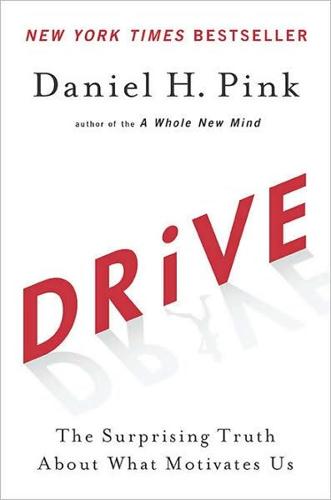
Drive: The Surprising Truth About What Motivates Us
by
Daniel H. Pink
Published 1 Jan 2008
Subramanyam, and Yuan Zhang, Earnings Guidance and Managerial Myopia, SSRN Working Paper No. 854515 , November 2005. Lisa D. Ordonez, Maurice E. Schweitzer, Adam D. Galinsky, and Max H. Braverman, Goals Gone Wild: The Systematic Side Effects of Over-Prescribing Goal Setting, Harvard Business School Working Paper No. 09-083 , February 2009. Roland BŽnabou and Jean Tirole, Intrinsic and Extrinsic Motivation, Review of Economic Studies 70 (2003). CHAPTER 2A. . . . AND THE SPECIAL CIRCUMSTANCES WHEN THEY DO Edward L. Deci, Richard Koestner, and Richard M. Ryan, Extrinsic Rewards and Intrinsic Motivation in Education: Reconsidered Once Again, Review of Educational Research 71, no. 1 (Spring 2001): 14.
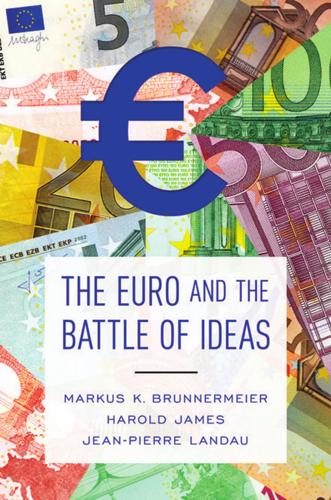
The Euro and the Battle of Ideas
by
Markus K. Brunnermeier
,
Harold James
and
Jean-Pierre Landau
Published 3 Aug 2016
Indeed, French academics have made a decisive contribution to the literature on time consistency and the consequent significance of the correct formulation of rules. In that sense, they have done more than the German Ordoliberals to present a version of a system of rules that is really applicable to the complexities of a modern economy, in which competition is not an obvious result of economic activity. Jean Tirole and Jean-Jacques Laffont in particular have been instrumental in developing a new approach to the provision of incentives by regulators, in which the dangers of creating moral hazard play a key role.44 The visions of the past influence the way that economics is seen. Most French economists complain—as did the recent best-selling author Thomas Piketty of Capital, a dramatic manifesto on how capitalism does not provide a self-sustaining and politically acceptable model of growth—that “economists are not highly respected in the academic and intellectual world or by political and financial elites.”45 In fact, a popular and intellectual culture exists that sees economists as narrow-minded and soulless technocrats who force a dehumanized concept of rationality on their fellow citizens.
…
Charles Maier, “The Politics of Productivity: Foundations of American International Economic Policy after World War II,” in In Search of Stability: Explorations in Historical Political Economy, edited by Charles Maier (New York: Cambridge University Press), 121–52. 43. Pierre Bauby, L'Etat-stratège, (Paris: Les éditions ouvrières, 1991), 195. 44. Jean-Jacques Laffont and Jean Tirole, A Theory of Incentives in Regulation and Procurement (Cambridge, MA: MIT Press, 1993). In Germany, Hans-Werner Sinn also made a significant contribution to the analysis of the provision of public goods and built this position up as the basis for a critique of many of the Euro rescue mechanisms. 45.
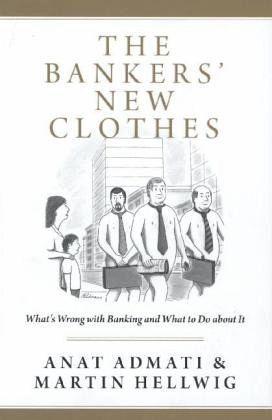
The Bankers' New Clothes: What's Wrong With Banking and What to Do About It
by
Anat Admati
and
Martin Hellwig
Published 15 Feb 2013
International Monetary Fund, Washington, DC. May 3. Demyanyk, Yuliya, and Otto Van Hemert. 2009. “Understanding the Subprime Mortgage Crisis.” Review of Financial Studies 24 (6): 1848–1880. Dermine, Jean. 1990. European Banking in the 1990s. Oxford, England: Blackwell. Dewatripont, Mathias, and Jean Tirole. 1994. The Prudential Regulation of Banks. Cambridge, MA: MIT Press. ———. “Macroeconomic Shocks and Banking Regulation.” Journal of Money, Credit, and Banking, forthcoming. Diamond, Douglas W. 1984. “Financial Intermediation and Delegated Monitoring.” Review of Economic Studies 51: 193–414. ———. 1991.
…
“Bank CEO Incentives and the Credit Crisis.” Journal of Financial Economics 99: 11–26. Farber, David B., Marilyn F. Johnson, and Kathy R. Petroni. 2007. “Congressional Intervention in the Standard-Setting Process: An Analysis of the Stock Option Accounting Reform Act of 2004.” Accounting Horizons 21 (1): 1–22. Farhi, Emmanuel, and Jean Tirole. 2011. “Collective Moral Hazard, Maturity Mismatch, and Systemic Bailouts.” Working paper. Harvard University, Cambridge, MA, and Toulouse School of Economics, University of Toulouse, Toulouse, France. FCIC (Financial Crisis Inquiry Commission). 2011. The Financial Crisis Inquiry Report. Washington, DC: U.S.
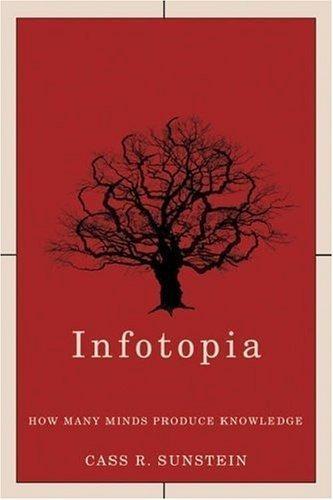
Infotopia: How Many Minds Produce Knowledge
by
Cass R. Sunstein
Published 23 Aug 2006
Interested readers may enjoy Torvalds’s homepage; see http:// www.cs.helsinki.fi/u/torvalds/. 31. See Richard Stallman, “The GNU Operating System and the Free Software Movement,” in Open Sources: Voices from the Open Source Revolution, ed. Chris Dibona et al. (Sebastopol, CA: O’Reilly, 1999), 55–56. 32. Ibid., 57. 33. See Josh Lerner and Jean Tirole, “The Economics of Technology Sharing: Open Source and Beyond,” Journal of Economic Perspectives 19 (2005): 100. 34. Ibid. 254 / Notes to Pages 167–71 35. See Raymond, The Cathedral and the Bazaar. 36. Ibid., 21–22. 37. Here, too, I am grateful to Ethan Zuckerman for clarifying comments. 38.
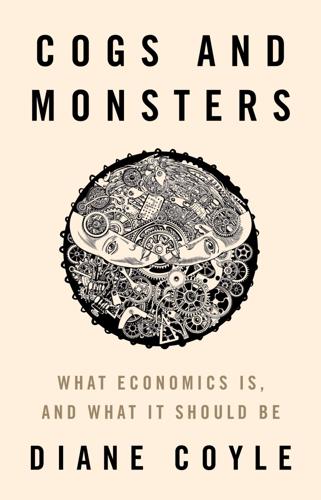
Cogs and Monsters: What Economics Is, and What It Should Be
by
Diane Coyle
Published 11 Oct 2021
I am grateful to many other colleagues in Cambridge and beyond for their comments and conversations helping stimulate my thinking at various stages through the years, including Matthew Agarwala, Anna Alexandrova, Eric Beinhocker, Tim Besley, Sam Bowles, John Bowers, Erik Brynjolfsson, Wendy Carlin, Vasco Carvalho, Jagjit Chadha, Carol Corrado, Jacques Crémer, Meredith Crowley, Partha Dasgupta, Mark Fabian, Marco Felici, Amelia Fletcher, Jason Furman, Tim Gardam, Rachel Griffith, Dennis Grube, Andrew Haldane, Jonathan Haskel, Cameron Hepburn, Cecilia Heyes, Bill Janeway, Dale Jorgenson, Saite Lu, Derek McAuley, Philip Marsden, David Miles, John Naughton, Jennifer Rubin, David Runciman, Paul Seabright, Margaret Stevens, Joseph Stiglitz, Jeni Tennison, Alex Teytelboym, Jean Tirole, Flavio Toxvaerd, Romesh Vaitilingam, Bart Van Ark, Tony Venables, Anna Vignoles, Dimitri Zenghelis. The biggest single influence on my economics career has been Professor Peter Sinclair, my undergraduate tutor at Brasenose College, Oxford, and a lifelong mentor and friend. He is the reason I became an economist, and he shaped the kind of economist I became.
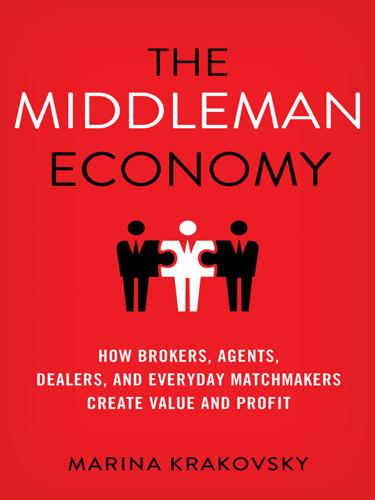
The Middleman Economy: How Brokers, Agents, Dealers, and Everyday Matchmakers Create Value and Profit
by
Marina Krakovsky
Published 14 Sep 2015
Stein, “Banks as Liquidity Providers: An Explanation for the Coexistence of Lending and Deposit Taking,” The Journal of Finance 57, no. 1 (February 2002): 33–73. 33.Interview with Genevieve Thiers, January 27, 2014. 34.Libby Kane, “Entrepreneurship 101: Interview with Genevieve Thiers,” LearnVest, September 12, 2012. 35.Interview with Marc Rysman, January 31, 2014. Rysman’s contribution to the literature is Marc Rysman, “The Economics of Two-Sided Markets,” Journal of Economic Perspectives 23, no. 3 (2009). Another survey paper is Jean-Charles Rochet and Jean Tirole, “Two-sided Markets: A Progress Report,” RAND Journal of Economics 37, no. 3 (September 2006): 646–67. The classic paper describing increasing returns to scale is W. Brian Arthur, “Competing Technologies, Increasing Returns, and Lock-In By Historical Events,” The Economic Journal 99, no. 394 (March 1989).
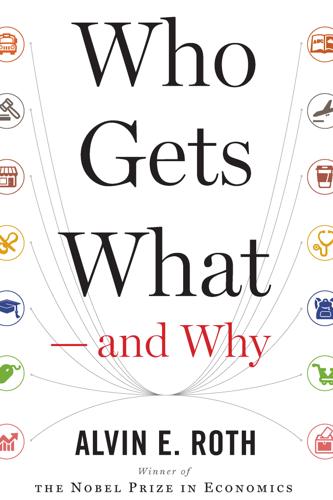
Who Gets What — and Why: The New Economics of Matchmaking and Market Design
by
Alvin E. Roth
Published 1 Jun 2015
. [>] Credit cards offered merchants: Credit cards are sometimes referred to by economists as “two-sided markets” because of the way they form a marketplace that needs to attract two different kinds of participants: merchants and consumers. One important strand of work focuses on how the two sides of the service should be priced; see, for example, Jean-Charles Rochet and Jean Tirole, “Two-Sided Markets: A Progress Report,” RAND Journal of Economics 37, no. 3 (Autumn 2006): 645–67. [>] they seldom switch cards: See Lawrence M. Ausubel, “The Failure of Competition in the Credit Card Market,” American Economic Review 81, no. 1 (March 1991): 50–81. [>] middlemen: For competition among middlemen, see Benjamin Edelman and Julian Wright, “Price Coherence and Adverse Intermediation” (working paper, Harvard Business School, Cambridge, MA, December 2013). 3.
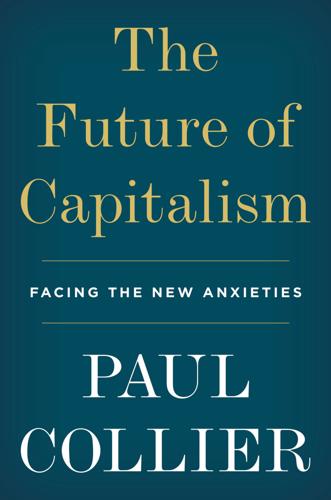
The Future of Capitalism: Facing the New Anxieties
by
Paul Collier
Published 4 Dec 2018
There has, however, to be a limit to such security; while firms should be able to cope with temporary fluctuations, they cannot adjust to a large, permanent drop in demand without shedding labour. At the limit, the firm goes bankrupt. Yet the fact that job loss is unavoidable in no way mitigates the cost to the worker. For this class of shock, we need an entity larger than the firm – the state. Nobel Laureate Jean Tirole has proposed a smart way for government to induce firms to retain workers through market troughs, while still enabling them to shed employees when faced by a permanent contraction. This is to impose a charge on labour-shedding to reflect the extra costs to the state of welfare payments and retraining.
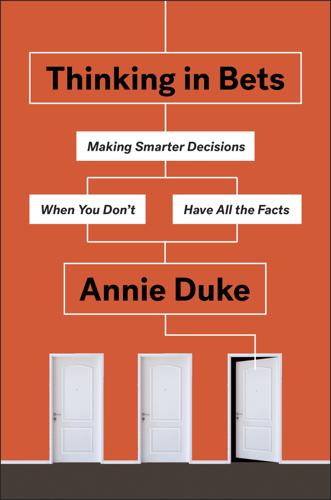
Thinking in Bets
by
Annie Duke
Published 6 Feb 2018
Schelling (2005, game theory, “for having enhanced our understanding of conflict and cooperation through game theory analysis”); (6) Leonid Hurwicz, (7) Eric S. Maskin, and (8) Roger B. Myerson (2007, microeconomics, “for having laid the foundations of mechanism design theory”); (9) Alvin E. Roth and (10) Lloyd S. Shapley (2012, applied game theory, “for the theory of stable allocations and the practice of market design”); and (11) Jean Tirole (2014, industrial organization, microeconomics, “for his analysis of market power and regulation”). Poker vs. chess: My brother Howard came from a chess background, but the movement of players from chess into poker is relatively rare. In my opinion, the lack of uncertainty in chess compared with the great uncertainty in poker is a barrier to transitioning from one to the other.
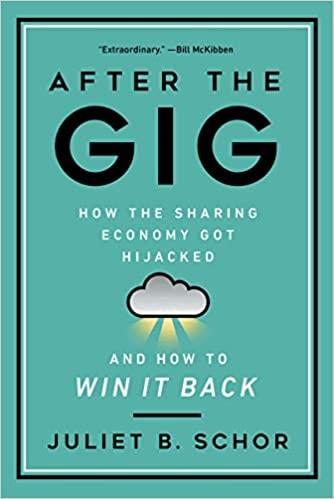
After the Gig: How the Sharing Economy Got Hijacked and How to Win It Back
by
Juliet Schor
,
William Attwood-Charles
and
Mehmet Cansoy
Published 15 Mar 2020
Geoforum 67 (December): 121–29. Ritzer, George. 2007. The McDonaldization of Society. 2nd ed. Thousand Oaks, CA: Pine Forge. Robinson, H. C. 2017. “Making a Digital Working Class: Uber Drivers in Boston, 2016–2017.” PhD diss., MIT Program in Science, Technology and Society. Rochet, Jean-Charles, and Jean Tirole. 2003. “Platform Competition in Two-Sided Markets.” Journal of the European Economic Association 1 (4): 990–1029. Rogers, Brishen. 2015. “The Social Costs of Uber.” University of Chicago Law Review 82:85–102. ———. 2016. “Employment Rights in the Platform Economy: Getting Back to Basics.” Harvard Law and Policy Review 10:479–520. ———. 2018.
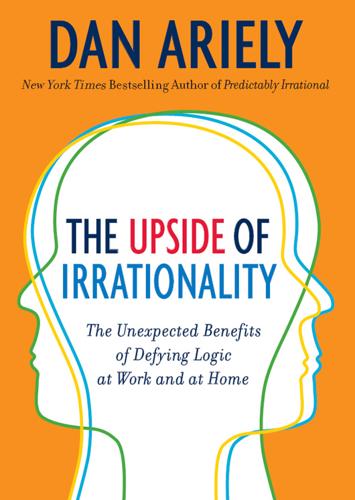
The Upside of Irrationality: The Unexpected Benefits of Defying Logic at Work and at Home
by
Dan Ariely
Published 31 May 2010
Additional readings Eduardo Andrade and Teck-Hua Ho, “Gaming Emotions in Social Interactions,” Journal of Consumer Research 36, no. 4 (2009): 539–552. Dan Ariely, Anat Bracha, and Stephan Meier, “Doing Good or Doing Well? Image Motivation and Monetary Incentives in Behaving Prosocially,” American Economic Review 99, no. 1 (2009): 544–545. Roland Bénabou and Jean Tirole, “Incentives and Prosocial Behavior,” American Economic Review 96, no. 5 (2006): 1652–1678. Ronit Bodner and Dražen Prelec, “Self-Signaling and Diagnostic Utility in Everyday Decision Making,” in Psychology of Economic Decisions, vol. 1, ed. Isabelle Brocas and Juan Carrillo (New York: Oxford University Press, 2003).
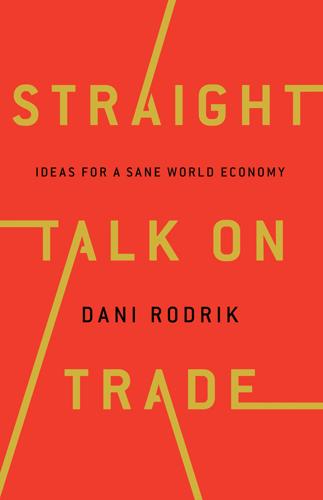
Straight Talk on Trade: Ideas for a Sane World Economy
by
Dani Rodrik
Published 8 Oct 2017
CHAPTER 7: Economists, Politics, and Ideas 1. George J. Stigler, “The Theory of Economic Regulation,” Bell Journal of Economics and Management Science, vol. 2(1), Spring 1971: 3–21; Sam Peltzman, “Toward a More General Theory of Regulation,” Journal of Law and Economics, vol. 19(2), 1976: 211–240; Jean-Jacques Laffont and Jean Tirole “The Politics of Government Decision Making: A Theory of Regulatory Capture,” Quarterly Journal of Economics, vol. 106, 1991: 1089–1127. 2. Anne O. Krueger, “The Political Economy of the Rent-Seeking Society,” American Economic Review, vol. 64(3), June 1974: 291–303; Gene Grossman and Elhanan Helpman, “Protection for Sale,” American Economic Review, vol. 84(4), 1994: 833; Dani Rodrik, “The Political Economy of Trade Policy,” in Handbook of International Economics, G.
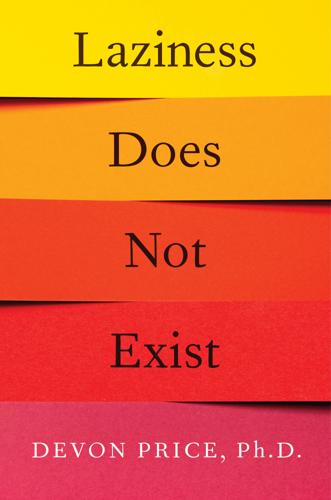
Laziness Does Not Exist
by
Devon Price
Published 5 Jan 2021
Megan Garber, “The Perils of Meritocracy,” Atlantic, June 30, 2017, https://www.theatlantic.com/entertainment/archive/2017/06/the-perils-of-meritocracy/532215/. 30. Melvin J. Lerner, “The Two Forms of Belief in a Just World,” in Responses to Victimizations and Belief in a Just World (Boston: Springer, 1998), 247–69. 31. Roland Bénabou and Jean Tirole, “Belief in a Just World and Redistributive Politics,” Quarterly Journal of Economics 121, no. 2, 699–746. 32. “Common Portrayals of Persons with Disabilities,” Media Smarts, August 22, 2014, http://mediasmarts.ca/diversity-media/persons-disabilities/common-portrayals-persons-disabilities. 33.
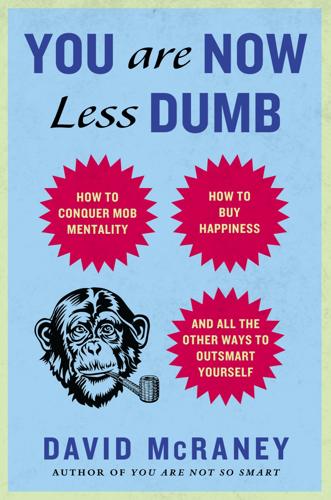
You Are Now Less Dumb: How to Conquer Mob Mentality, How to Buy Happiness, and All the Other Ways to Outsmart Yourself
by
David McRaney
Published 29 Jul 2013
The Overjustification Effect Ariely, Dan. Predictably Irrational: The Hidden Forces That Shape Our Decisions. New York: Harper, 2008. “Behavior: Skinner’s Utopia: Panacea or Path to Hell?” Time, Sept. 20, 1971. Web: Dec. 2011, www.time.com/time/magazine/article/0,9171,909994,00.html. Benabou, Roland, and Jean Tirole. “Intrinsic and Extrinsic Motivation.” Review of Economic Studies 70, no. 3 (2003): 489–520. Benjamin, Daniel J., Ori Heffetz, Miles S. Kimball, and Alex Rees-Jones. Do People Seek to Maximize Happiness? Evidence from New Surveys. National Bureau of Economic Research, Oct. 24, 2010. Web: Dec. 2011, www.nber.org/papers/w16489.pdf.
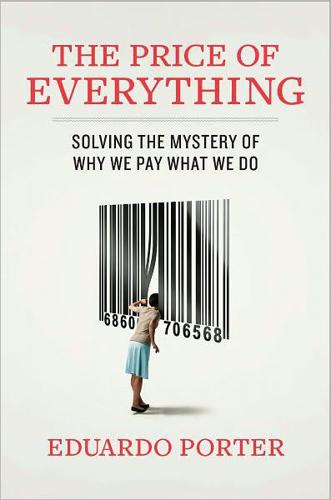
The Price of Everything: And the Hidden Logic of Value
by
Eduardo Porter
Published 4 Jan 2011
The analysis of the relationship between the price of labor and the availability of services is in Robert Lipsey and Birgitta Swedenborg, “High-Price and Low-Price Countries: Causes and Consequences of Product Price Differences Across Countries,” University of Pennsylvania Workshop Presentation, 2008; Robert Lipsey and Birgitta Swedenborg, “Explaining Product Price Differences Across Countries,” NBER Working Paper, July 2007; and Robert Lipsey and Birgitta Swedenborg, “Wage Dispersion and Country Price Levels,” NBER Working Paper, 1997. The commentary on the different views on fairness and luck in Europe and the United States draws from Roland Benabou and Jean Tirole, “Belief in a Just World and Redistributive Politics,” NBER Working Paper, March 2005; and World Values Survey, 2005-2008 wave (http://www.wvsevsdb.com/wvs/WVSAnalizeStudy.jsp, accessed 08/09/2010). The discussion on racial diversity and support for redistributive policies draws from William Julius Wilson, When Work Disappears: The World of the New Urban Poor (New York: Vintage Books, 1997), p. 202.
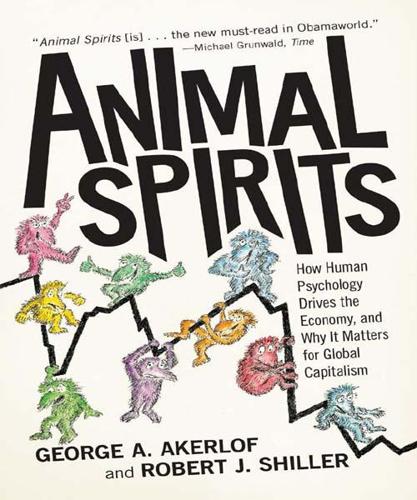
Animal Spirits: How Human Psychology Drives the Economy, and Why It Matters for Global Capitalism
by
George A. Akerlof
and
Robert J. Shiller
Published 1 Jan 2009
Institute for the Study of Labor Discussion Paper 959. Becker, Gary S. 1968. “Crime and Punishment: An Economic Approach.” Journal of Political Economy 76:169–217. Benabou, Roland. 2008. “Groupthink: Collective Delusions in Organizations and Markets.” Unpublished paper, Princeton University. Benabou, Roland, and Jean Tirole. 2000. “Self-Confidence and Social Interactions.” National Bureau of Economic Research Working Paper 7585, March. Benoit, Bernard, Ben Hall, Krishna Guha, Francesco Guerrera, and Henry Sender. 2008. “US Prepares $250bn Banks Push; Global Rebound; S&P 500 Soars 11.6 % as Markets Cheer Europe’s $2,546bn Move.”
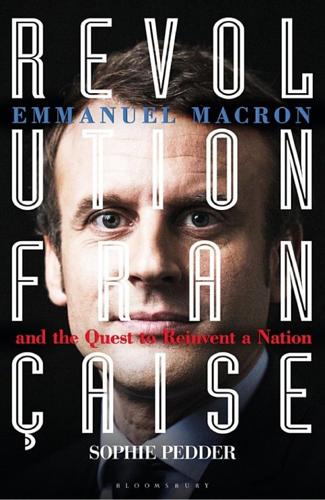
Revolution Française: Emmanuel Macron and the Quest to Reinvent a Nation
by
Sophie Pedder
Published 20 Jun 2018
Yet, across all disciplines, 82 per cent of undergraduates got their degree in three years. During the student revolt, the Toulouse 1 campus was shut for just a brief period. In the Toulouse School of Economics (TSE), a faculty within the university, it has a world-class department of economics. One of the TSE pioneers, Jean Tirole, won the 2014 Nobel Prize in this field. Indeed, the history of the TSE, which arose from an institute originally set up in 1990 by Jean-Jacques Laffont, shows both how France has tied its hands with the existing system, and how to circumvent it. Instead of accepting its lot, the school’s founders decided to work around the rules.
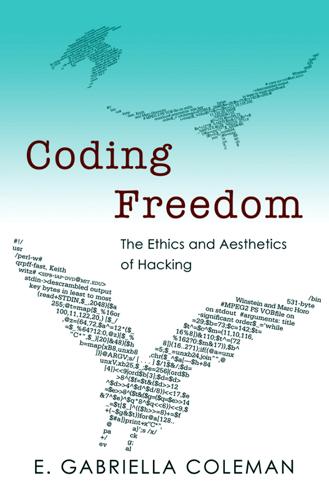
Coding Freedom: The Ethics and Aesthetics of Hacking
by
E. Gabriella Coleman
Published 25 Nov 2012
Leonard, Andrew. 1998. The Saint of Free Software. Salon.com. http://archive.salon.com/21st/feature/1998/08/cov_31feature.html (accessed July 17, 2011). Lerner, Josh, and Mark Schankerman. 2010. The Comingled Code: Open Source and Economic Development. Cambridge, MA: MIT Press. Lerner, Josh, and Jean Tirole. 2001. The Open Source Movement: Key Research Questions. European Economic Review 45 (4–6): 819–26. Lessig, Lawrence. 1999. Code and Other Laws of Cyberspace. New York: Basic Books. 2001a. The Future of Ideas: The Fate of the Commons in a Connected World. New York: Random House. 2001b. Jail Time in the Digital Age.
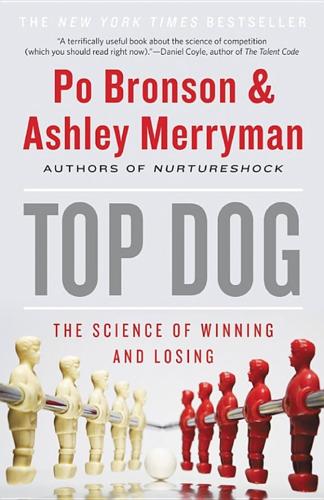
Top Dog: The Science of Winning and Losing
by
Po Bronson
and
Ashley Merryman
Published 19 Feb 2013
Magazine’s 500 Fastest-Growing Companies in America for Second Consecutive Year,” Press Release (8/27/2008) Moon, Jae Yun, & Lee Sproull, “Essence of Distributed Work: The Case of the Linux Kernel,” First Monday, vol. 5(11) (2000) Noyes, Kathleen, “Top Honor for Linus Torvalds Highlights Linux’s Importance,” Operating Systems Blog, PC World, http://bit.ly/HTceE4 (4/19/2012) Peyrache, Eloic, Jacques Cremer, & Jean Tirole, “Some Reflections on Open Source Software,” Communications & Strategies, vol. 40, pp. 139–159 (2000) Raymond, Eric, “The Cathedral and the Bazaar: Musings on Linux and Open Source by an Accidental Revolutionary, Revised Edition,” Sebastopol, CA: O’Reilly & Assoc., Inc. (2001) Terwiesch, Christian, & Yi Xu, “Innovation Contests, Open Innovation, and Multiagent Problem Solving,” Management Science, vol. 54(9), pp. 1529–1543 (2008) Torvalds, Linus, “Re: [Announce] [patch] Modular Scheduler Core and Completely Fair Scheduler [CFS],” E-mail exchange, http://bit.ly/wxQVcQ (4/15/2007) Torvalds, Linus, & David Diamond, Just for Fun: The Story of an Accidental Revolutionary, New York: Harper Business (2002) Watson, Andrew, “Reputation in Open Source Software,” Working Paper (2005) “Who Uses TopCoder?”
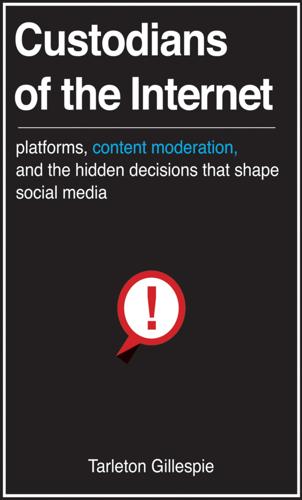
Custodians of the Internet: Platforms, Content Moderation, and the Hidden Decisions That Shape Social Media
by
Tarleton Gillespie
Published 25 Jun 2018
In Intersectional Internet: Race, Sex, Class and Culture Online, ed. Safiya Umoja Noble and Brendesha Tynes, 147–59. New York: Peter Lang. http://ir.lib.uwo.ca/commpub/12/?utm_source=ir.lib.uwo.ca%2Fcommpub%2F12&utm_medium=PDF&utm_campaign=PDFCoverPages. ———. 2017. “Content Moderation.” http://escholarship.org/uc/item/7371c1hf.pdf. ROCHET, JEAN-CHARLES, AND JEAN TIROLE. 2003. “Platform Competition in Two-Sided Markets.” Journal of the European Economic Association 1 (4): 990–1029. ROGERS, KEVIN. 2013. “Jailbroken: Examining the Policy and Legal Implications of iPhone Jailbreaking.” Pittsburgh Journal of Technology Law and Policy 13 (2). ROTH, LORNA. 2009. “Looking at Shirley, the Ultimate Norm: Colour Balance, Image Technologies, and Cognitive Equity.”
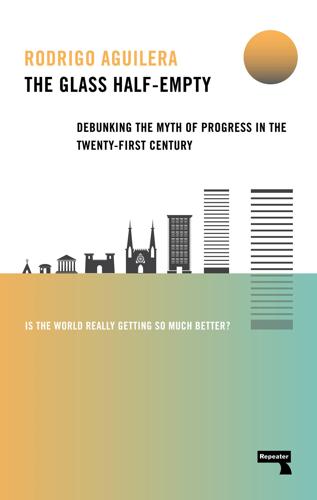
The Glass Half-Empty: Debunking the Myth of Progress in the Twenty-First Century
by
Rodrigo Aguilera
Published 10 Mar 2020
One study by a trio of Harvard economists showed that in a panel of five Western countries (including the UK, France, Italy, and Sweden), Americans were the only ones to overstate the odds of a child born to parents in the poorest fifth of income joining the richest fifth as an adult.38 Another study by French economists Roland Bénabou and Jean Tirole noted that around twice as many Europeans were likely to ascribe life outcomes to “luck” rather than effort or education compared to US respondents.39 Likewise, Americans were over twice as likely to think that the poor are “lazy or lack willpower” than Europeans. The policy consequence of this is that countries which are more likely to support BJW are less likely to adopt redistributive policies, as evidenced by the correlation between high BJW and low social spending.
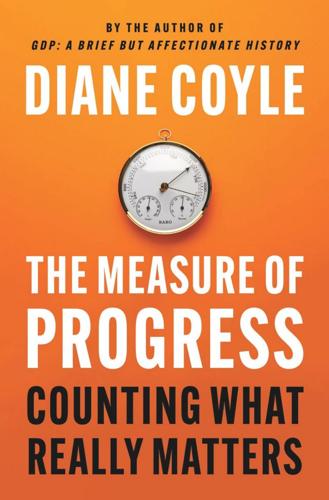
The Measure of Progress: Counting What Really Matters
by
Diane Coyle
Published 15 Apr 2025
The emerging platform models needed users on both sides, supply and demand, somebody to provide the content or information that would attract consumers; the sides have to be in appropriate balance or the platform w ill fail (now known in the literature as the “chicken and egg” problem). Naturally the platforms providing such s ervices also need to earn revenues. Some charge a commission or subscription, o thers sell advertising. As the classic early papers by Jean-Charles Rochet and Jean Tirole (2003, 2006) showed, pricing on each side depends on the relative elasticities of supply and demand. Typically these are such that the suppliers pay a fee and the users use for f ree as the demand elasticity is greater than the supply elasticity. Or—as is now well known—the platforms have advertisers on one side and make their money from advertising revenues.
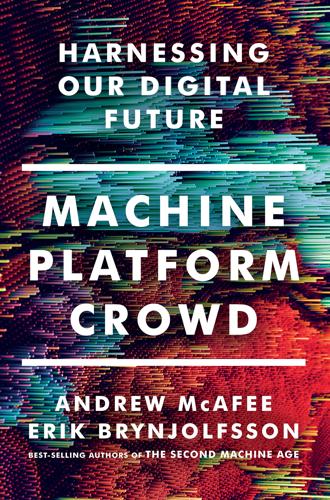
Machine, Platform, Crowd: Harnessing Our Digital Future
by
Andrew McAfee
and
Erik Brynjolfsson
Published 26 Jun 2017
Erik benefited immensely from the help of his students and research team, who not only provided solutions to many of the puzzles that emerged as we worked on this book, but more important, asked the questions that occur only to people who look at problems with fresh eyes, including especially: Sagit Bar-Gill, Andrey Fradkin, Avi Gannamaneni, Shan Huang, Meng Lui, JooHee Oh, Daniel Rock, Guillaume Saint-Jacques, George Westerman, and Erina Ytsma. A few hundred students in Erik’s MBA classes served as lively test subjects for many of the nascent ideas that made it into the book, and many more that didn’t. Professors Marshall Van Alstyne, Geoff Parker, and Jean Tirole were particularly helpful in thinking through some of the issues relating to platform economics, while Naomi Stephen provided superb administrative support. Erik drew inspiration from ShaoLan Hsueh’s encouragement as the project neared completion. He is especially grateful to his family’s support throughout this project, even as it kept him away from them too often.
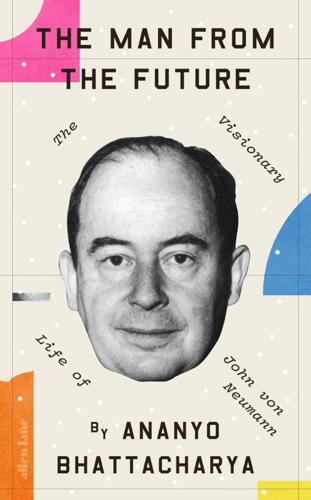
The Man From the Future: The Visionary Life of John Von Neumann
by
Ananyo Bhattacharya
Published 6 Oct 2021
An admirer of von Neumann, ‘one of the giant intellectual figures of the twentieth century’, Kahneman and his close collaborator, Amos Tversky, studied how real people actually make decisions and devised their own ‘prospect theory’ to explain findings that ran counter to some of utility theory’s predictions.78 Jean Tirole, the 2014 Nobel winner, used game theory to analyse industries dominated by a few powerful companies – an increasingly pertinent topic in the Internet economy. While economists had well-developed theories for markets with lots of competing firms and for monopolies, the theory underpinning how oligopolies work was sketchy.
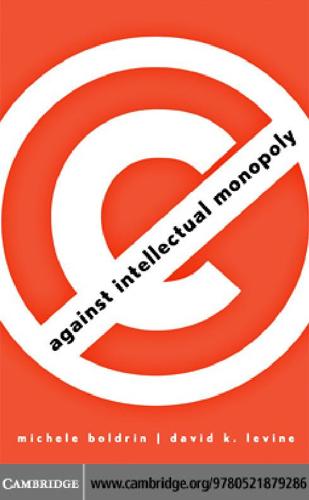
Against Intellectual Monopoly
by
Michele Boldrin
and
David K. Levine
Published 6 Jul 2008
P1: KNP head margin: 1/2 gutter margin: 7/8 CUUS245-07 cuus245 978 0 521 87928 6 May 21, 2008 16:55 158 Against Intellectual Monopoly Economic Arguments for Intellectual Monopoly Economists – ourselves included – think that it is important that the creators of ideas be compensated for their effort in adding to our stock of knowledge.8 Although the economics literature generally acknowledges that intellectual property leads to undesirable intellectual monopoly, it also argues that this might be a good thing – because creators of new ideas may not be adequately compensated otherwise, and this is one way to provide additional compensation. As Joseph Schumpeter, in the words of Jean Tirole, puts it, “If one wants to induce firms to undertake R&D one must accept the creation of monopolies as a necessary evil.”9 This view is as commonly held among economists today as it was in the past. In their recent textbook, Robert Barro and Xavier Sala-i-Martin argue: In order to motivate research, successful innovators have to be compensated in some manner.

Narrative Economics: How Stories Go Viral and Drive Major Economic Events
by
Robert J. Shiller
Published 14 Oct 2019
Fair, Ray C. 1987. “Sources of Output and Price Variability in a Macroeconomic Model.” Yale University: Cowles Foundation Discussion Paper 815. Fair, Ray C., and Robert J. Shiller. 1989. “The Informational Content of Ex Ante Forecasts.” Review of Economics and Statistics 71(2):325–31. Falk, Armin, and Jean Tirole. 2016. “Narratives, Imperatives, and Moral Reasoning.” Unpublished paper, University of Bonn. Falter, Jürgen W. 1986. “Unemployment and the Radicalisation of the German Electorate 1928–1933: An Aggregate Data Analysis with Special Emphasis on the Rise of National Socialism.” In Peter Stachura, ed., Unemployment and the Great Depression in Weimar Germany, 187–208.

Corporate Warriors: The Rise of the Privatized Military Industry
by
Peter Warren Singer
Published 1 Jan 2003
The fact that industry employees do not have any union protection only underscores their dependence on the goodwill of firm management and the impetus to turn a profit. Shichor, Punishment for Profit. 56. 21. Donahue, Privatization Decision, 54. 22. Ash ton Carter and John White, Keeping the Edge (Cambridge: MIT Press, 2001), 187. 23. Donahue, Privatization Decision, 105. 24. Jean Tirole. The Theory of Industrial Organization (Cambridge, Mass.: MIT Press, 1988), 29-49- 25. General Accounting Office. "Contingency Operations: Army Should Do More to Control Contract Cost in the Balkans." NSDIAD-00-225. October (i, 2000. http://www .gao.gov/ 2(3. Interviews with a PMF employee and a L\S. government official, Sarajevo, July 1999. 27.
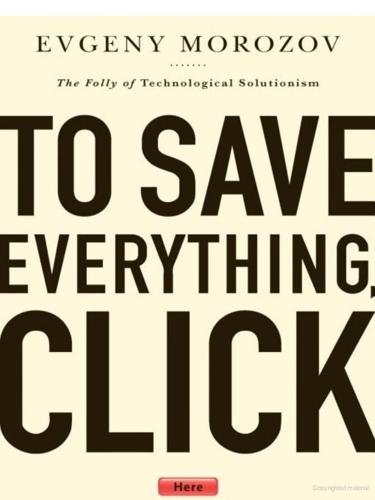
To Save Everything, Click Here: The Folly of Technological Solutionism
by
Evgeny Morozov
Published 15 Nov 2013
_r=0. 302 “anything can be fun”: quoted in Chorney, “Taking the Game out of Gamification,” 8. 302 “governments typically use two tools”: Thaler, “Making Good Citizenship Fun.” 302 “relating to the duties or activities”: “Civic,” Oxford Dictionaries, http://oxforddictionaries.com/definition/english/civic. 302 into two categories: for some reviews of the motivation literature in psychology and economics, see Roland Bénabou and Jean Tirole, “Intrinsic and Extrinsic Motivation,” Review of Economic Studies 70, no. 3 (July 1, 2003): 489–520, and Richard M. Ryan and Edward L. Deci, “Intrinsic and Extrinsic Motivations: Classic Definitions and New Directions,” Contemporary Educational Psychology 25, no. 1 (January 2000): 54–67. 302 Hence, some recent social experiments: discussed in Gabe Zichermann and Christopher Cunningham, Gamification by Design: Implementing Game Mechanics in Web and Mobile Apps, 1st ed.
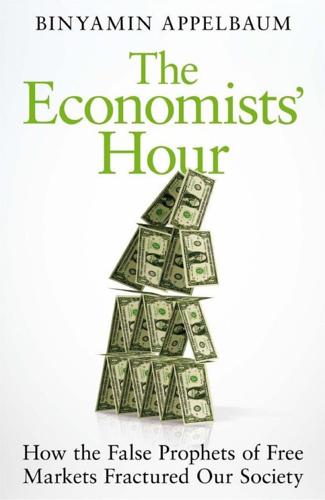
The Economists' Hour: How the False Prophets of Free Markets Fractured Our Society
by
Binyamin Appelbaum
Published 4 Sep 2019
The result was deregulation without competition. Three quarters of American households have, at best, a choice of two potential providers of high-speed internet service.98 In that same year, 2005, the United Kingdom tried again, adopting a new formula for leasing phone lines based on the work of the French economist Jean Tirole. The basic balancing act is to set rates high enough to reward investment by the company that owns the lines, but low enough to encourage competitors to lease the lines. Tirole’s answer proved successful, and it has been adopted by a growing number of nations. When Tirole was honored with the Nobel Prize in 2014, a member of the prize committee told reporters, “Politicians would be stupid not to take his policy advice.”99 The United States has not, and so Americans pay more for internet access.100 It is easy to forget that markets are human creations, precisely because we have created so many markets.
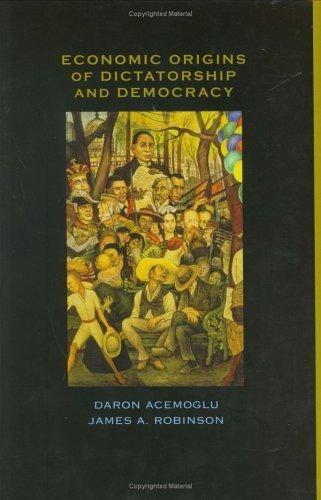
Economic Origins of Dictatorship and Democracy
by
Daron Acemoğlu
and
James A. Robinson
Published 28 Sep 2001
Flora, Peter (1983) State, Economy, and Society, 1815–1975; Frankfurt: Campus-Verlag. Fogel, Robert W. (1989) Without Consent or Contract: The Rise and Fall of American Slavery; New York: Norton. Fogel, Robert W., and Stanley L. Engerman (1974) Time on the Cross: The Economics of American Negro Slavery; Boston: Little, Brown. Fudenberg, Drew, and Jean Tirole (1991) Game Theory; Cambridge, MA: MIT Press. Fukuyama, Francis (1992) The End of History and the Last Man; New York: Free Press. Galor, Oded, and Omer Moav (2003) “Das Human Kapital: A Theory of the Demise of the Class Structure,” Unpublished. http://www.econ.brown.edu/fac/Oded Galor/. Galor, Oded, and Joseph Zeira (1993) “Income Distribution and Macroeconomics,” Review of Economic Studies, 40, 35–52.
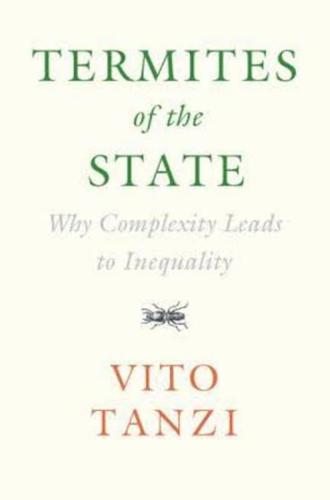
Termites of the State: Why Complexity Leads to Inequality
by
Vito Tanzi
Published 28 Dec 2017
Krueger, Anne O., 2000, Economic Policy Reform: The Second Stage (Chicago, IL: The University of Chicago Press). La Porta, Rafael, Florencio Lopez-Silanes, Andrei Shleifer, and Robert Vishny, 1998, “The Quality of Government.” Unpublished mimeo Lacey, A. R., 2001, Robert Nozick (Princeton, NJ: Princeton University Press). Laffont, Jean-Jacques and Jean Tirole, 1993, A Theory of Incentives in Procurement and Regulations (Cambridge, MA: MIT Press). Landes, David, 1983, Revolution in Time: Clocks and the Making of the Modern World (Cambridge, MA: Harvard University Press). 1998, The Wealth and Poverty of Nations: Why Some Are So Rich and Some so Poor (New York and London: W.
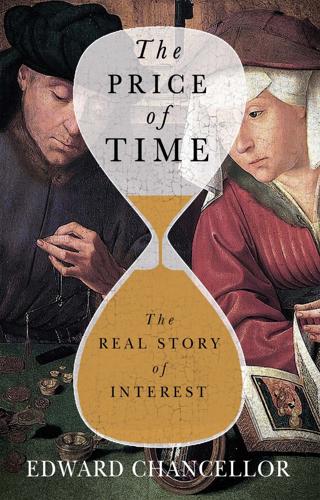
The Price of Time: The Real Story of Interest
by
Edward Chancellor
Published 15 Aug 2022
They conclude: ‘There is evidence that persistent low interest rates compress net interest margins and bank profitability, and that such a negative effect on bank profitability may in turn inhibit lending.’ 16. For evidence that low rates induce risk-taking, see Tobias Adrian and Hyun Song Shin, ‘Financial Intermediaries and Monetary Economics’, Federal Reserve Bank of New York, Staff Report No. 398, May 2010; Emmanuel Farhi and Jean Tirole, ‘Leverage and the Central Bankers’ Put’, American Economic Review, 99 (2), 1 May 2009; Leonardo Gambacorta, ‘Monetary Policy and the Risk-taking Channel’, BIS Quarterly Review, December 2009. 17. Jack Ewing, ‘Central Bankers, Worried about Bubbles, Rebuke Markets’, New York Times, 29 June 2014. 18.
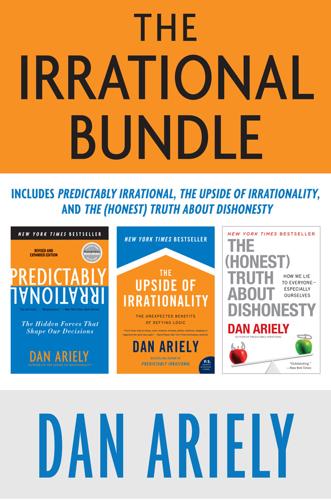
The Irrational Bundle
by
Dan Ariely
Published 3 Apr 2013
Additional readings Eduardo Andrade and Teck-Hua Ho, “Gaming Emotions in Social Interactions,” Journal of Consumer Research 36, no. 4 (2009): 539–552. Dan Ariely, Anat Bracha, and Stephan Meier, “Doing Good or Doing Well? Image Motivation and Monetary Incentives in Behaving Prosocially,” American Economic Review 99, no. 1 (2009): 544–545. Roland Bénabou and Jean Tirole, “Incentives and Prosocial Behavior,” American Economic Review 96, no. 5 (2006): 1652–1678. Ronit Bodner and Dražen Prelec, “Self-Signaling and Diagnostic Utility in Everyday Decision Making,” in Psychology of Economic Decisions, vol. 1, ed. Isabelle Brocas and Juan Carrillo (New York: Oxford University Press, 2003).
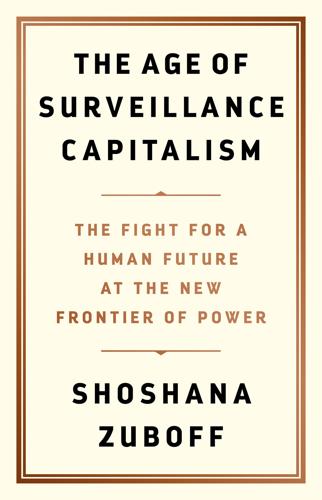
The Age of Surveillance Capitalism
by
Shoshana Zuboff
Published 15 Jan 2019
Roben Farzad, “Google at $400 Billion: A New No. 2 in Market Cap,” BusinessWeek, February 12, 2014, http://www.businessweek.com/articles/2014-02-12/google-at-400-billion-a-new-no-dot-2-in-market-cap. 92. “Largest Companies by Market Cap Today,” Dogs of the Dow, 2017, https://web.archive.org/web/20180701094340/http://dogsofthedow.com/largest-companies-by-market-cap.htm. 93. Jean-Charles Rochet and Jean Tirole, “Two-Sided Markets: A Progress Report,” RAND Journal of Economics 37, no. 3 (2006): 645–67. 94. For a discussion on this point and its relation to online target advertising, see Katherine J. Strandburg, “Free Fall: The Online Market’s Consumer Preference Disconnect” (working paper, New York University Law and Economics, October 1, 2013). 95.